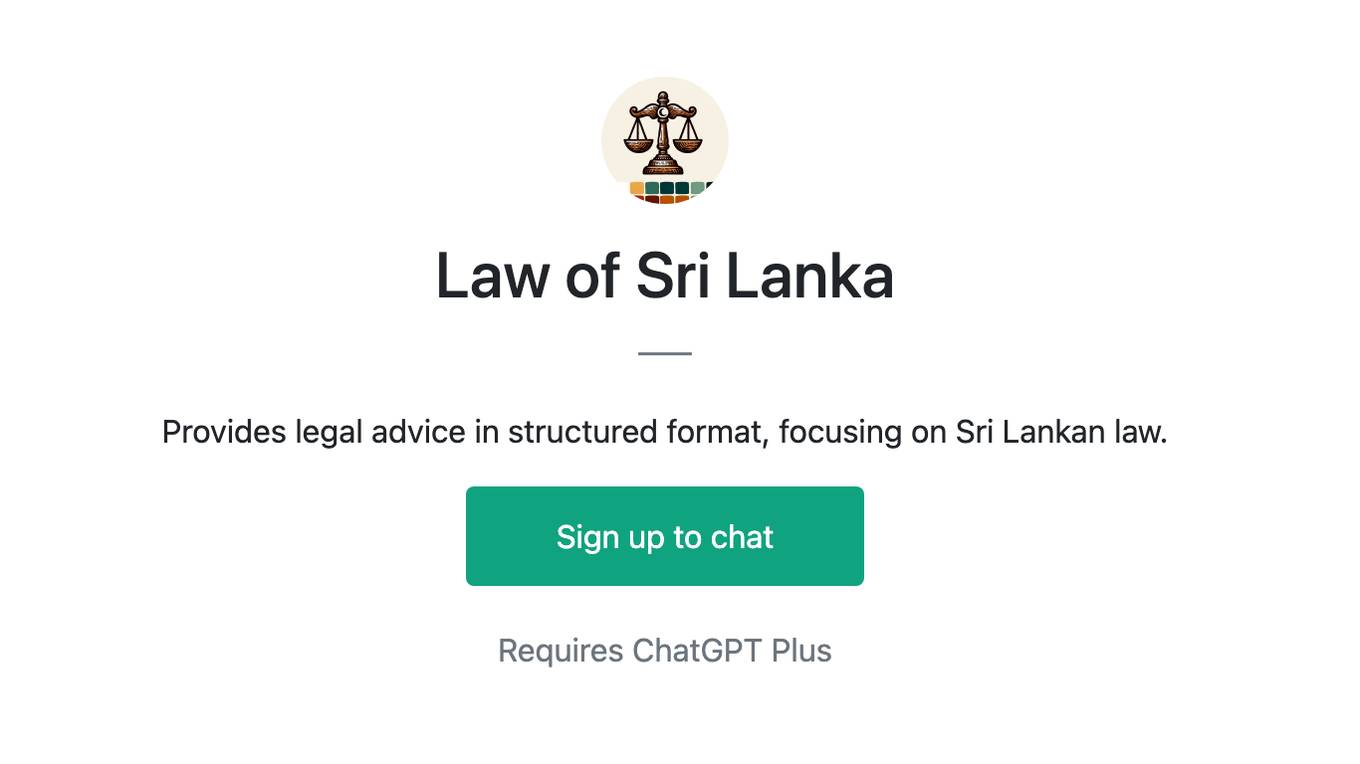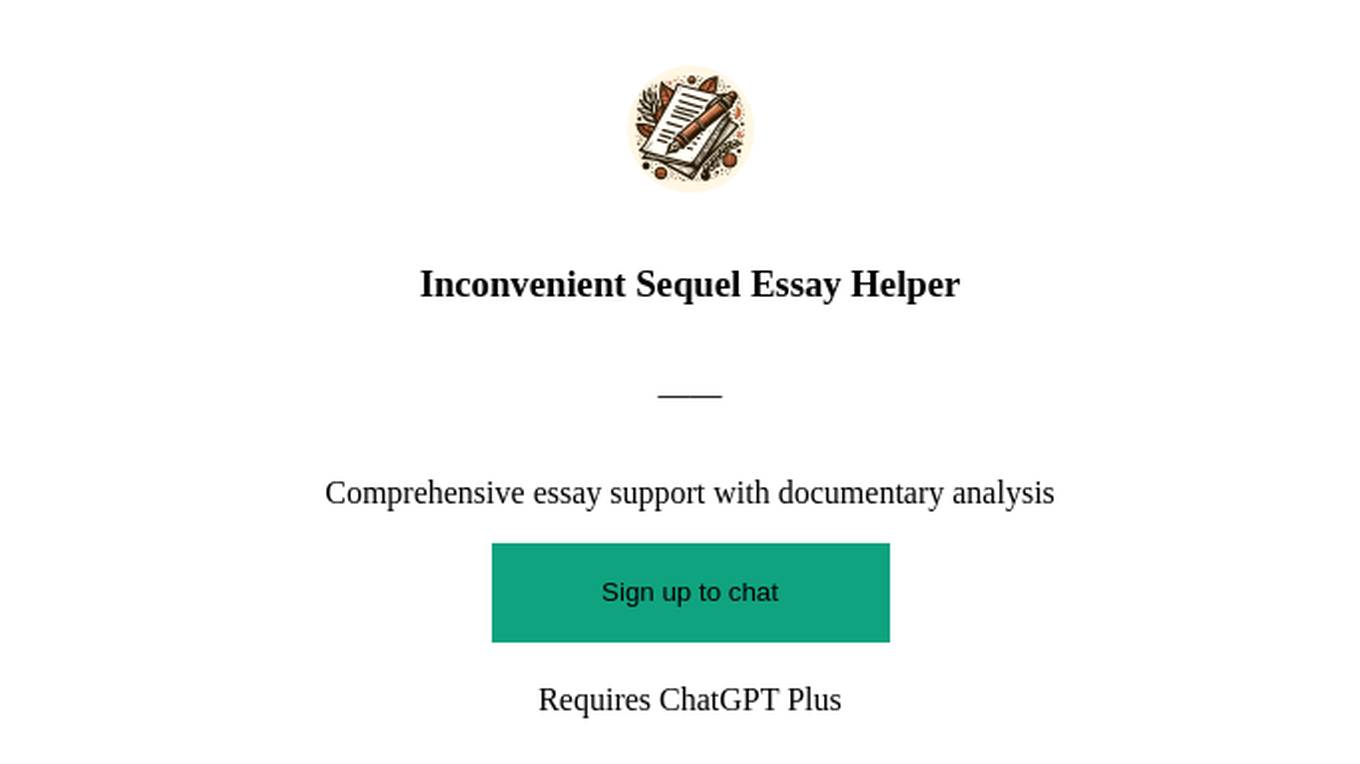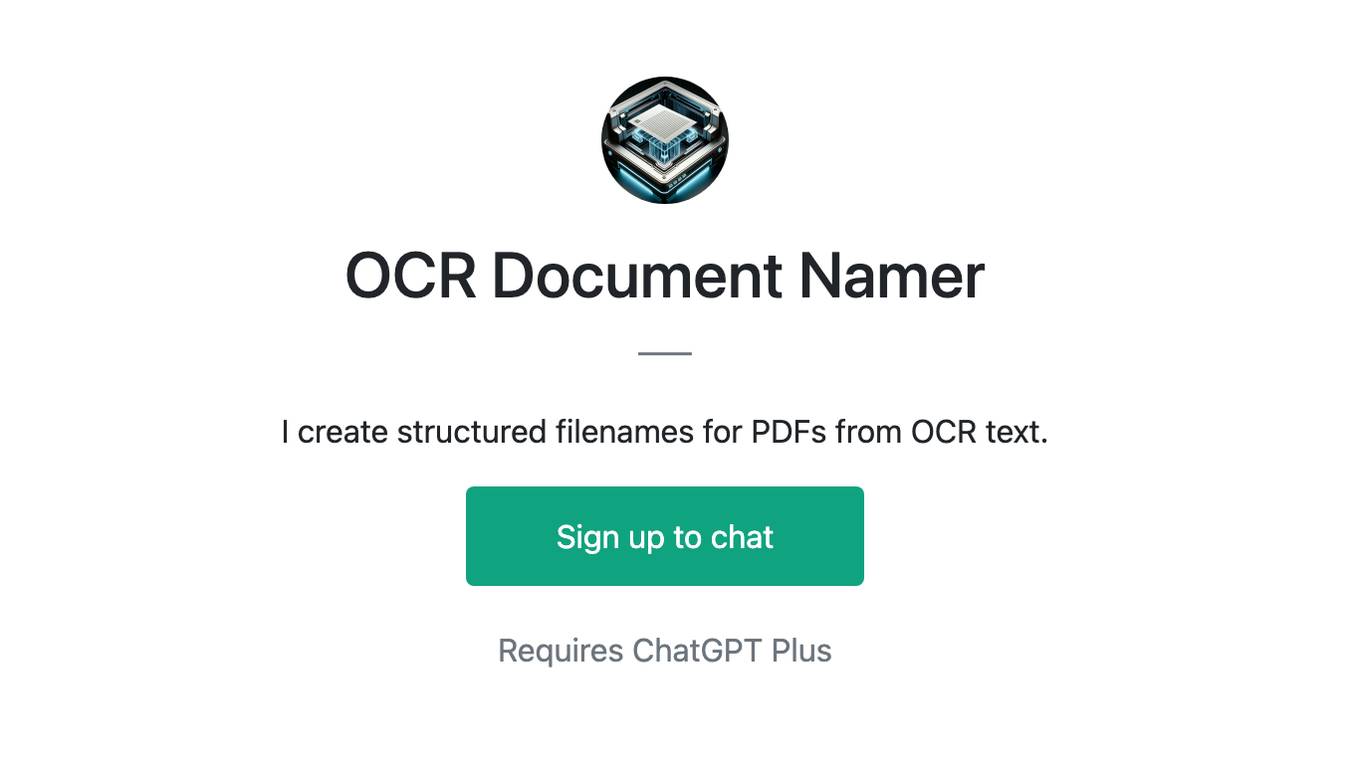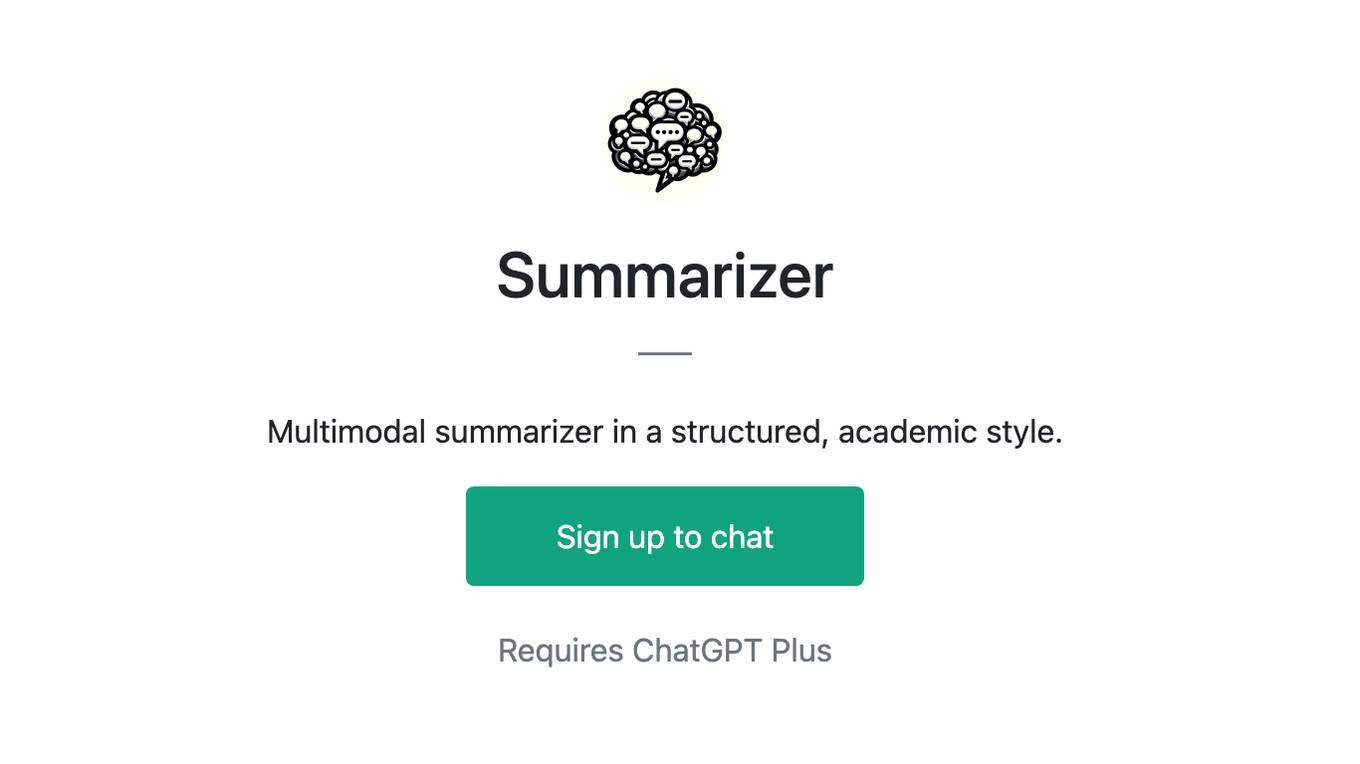Best AI tools for< Structure Documents >
20 - AI tool Sites
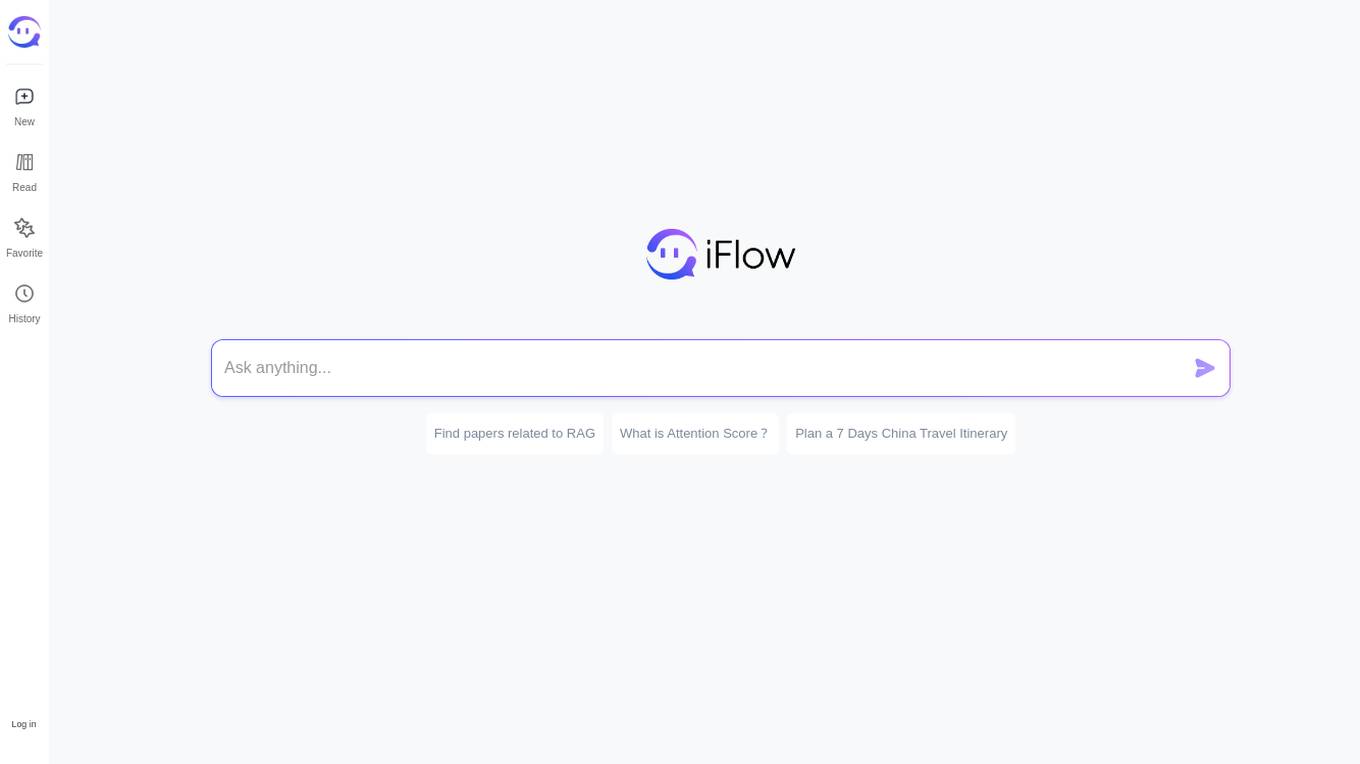
Iflow
Iflow is an AI assistant application designed to help users efficiently acquire knowledge in various areas, whether it's for daily entertainment, general life knowledge, or professional academic research. It provides real-time answers to questions, summarizes lengthy articles, and assists in structuring documents to enhance creativity and productivity. With Iflow, users can easily enter a state of flow where knowledge flows effortlessly. The application covers a wide range of topics and is equipped with advanced natural language processing capabilities to cater to diverse user needs.
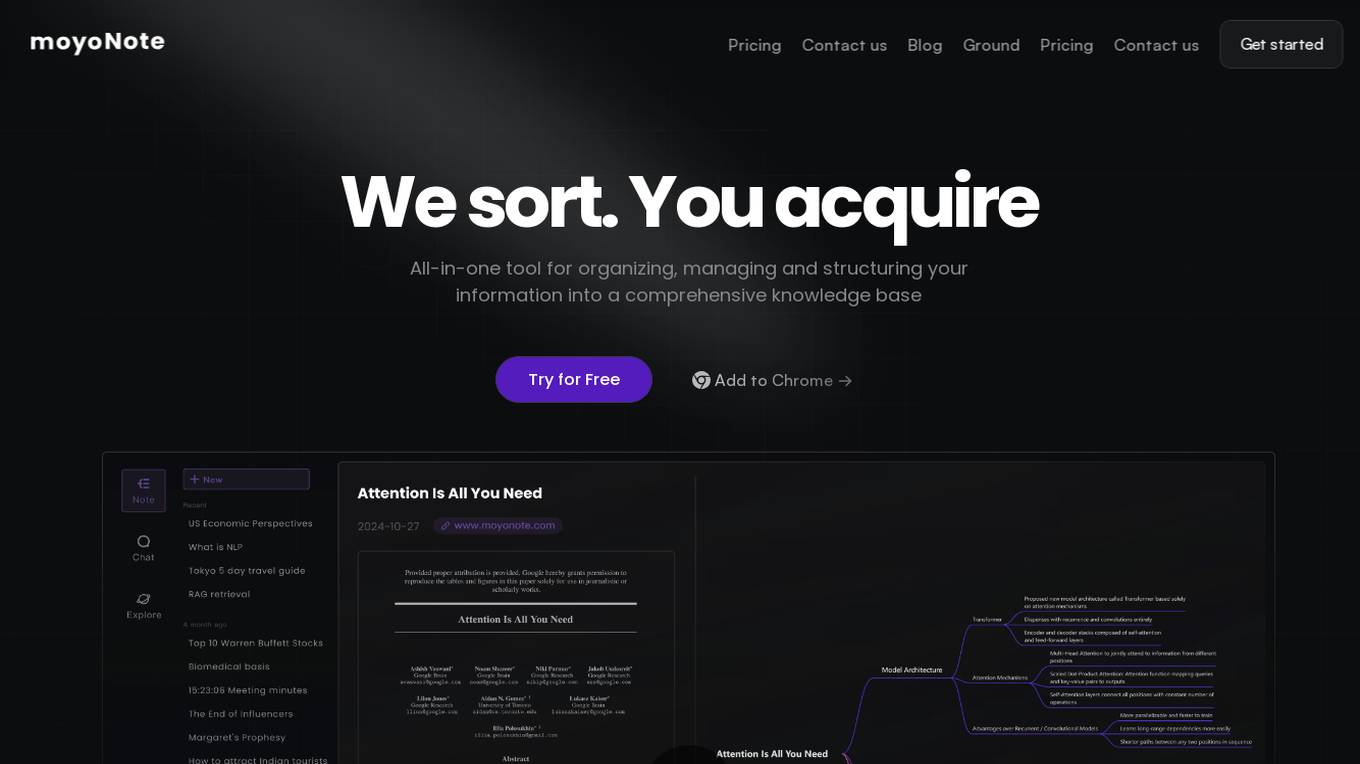
moyoNote
moyoNote is an AI-powered tool designed for organizing, managing, and structuring information into a comprehensive knowledge base. It offers features such as generating mind maps from text or files, interactive Q&A for maps, and customization options for personal expression. Users can easily share mind maps with others and control access permissions. The tool aims to simplify workflow, improve work efficiency, and enhance collaboration among users.
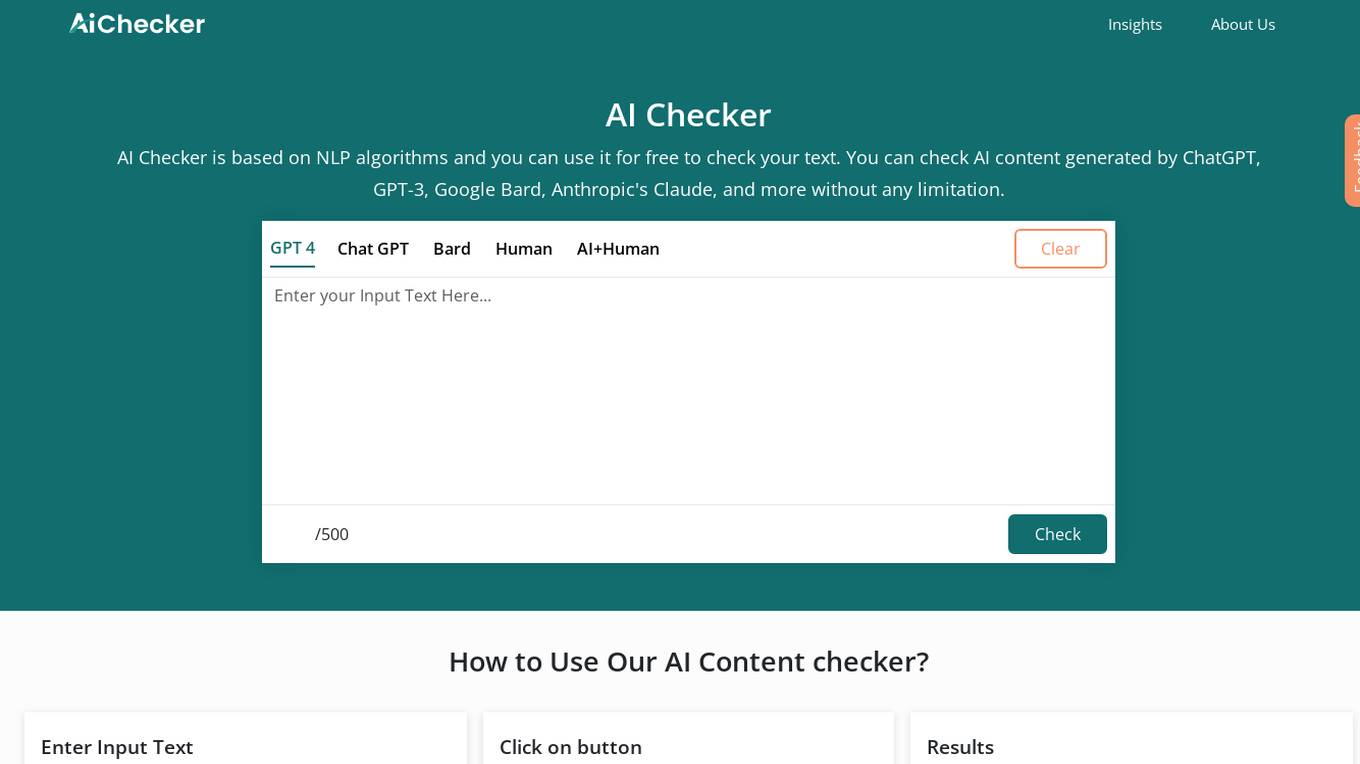
AI Checker
AI Checker is a free online tool that uses advanced artificial intelligence technology to detect AI-generated content. It can accurately identify text written by ChatGPT, Bard, and GPT-4, even when the text is carefully crafted to avoid detection. This AI writing checker works by analyzing the writing style and sentence structure. It looks for patterns that are commonly found in AI-generated content, such as repetitive phrases, vocabulary, keywords, academic language, and grammar errors. Our AI detector analyzes the text and provides a percentage score indicating the likelihood of AI writing similarity. A score of 100% means that the text is almost certainly AI-generated, while a score of 0% means that it is almost certainly human-written.
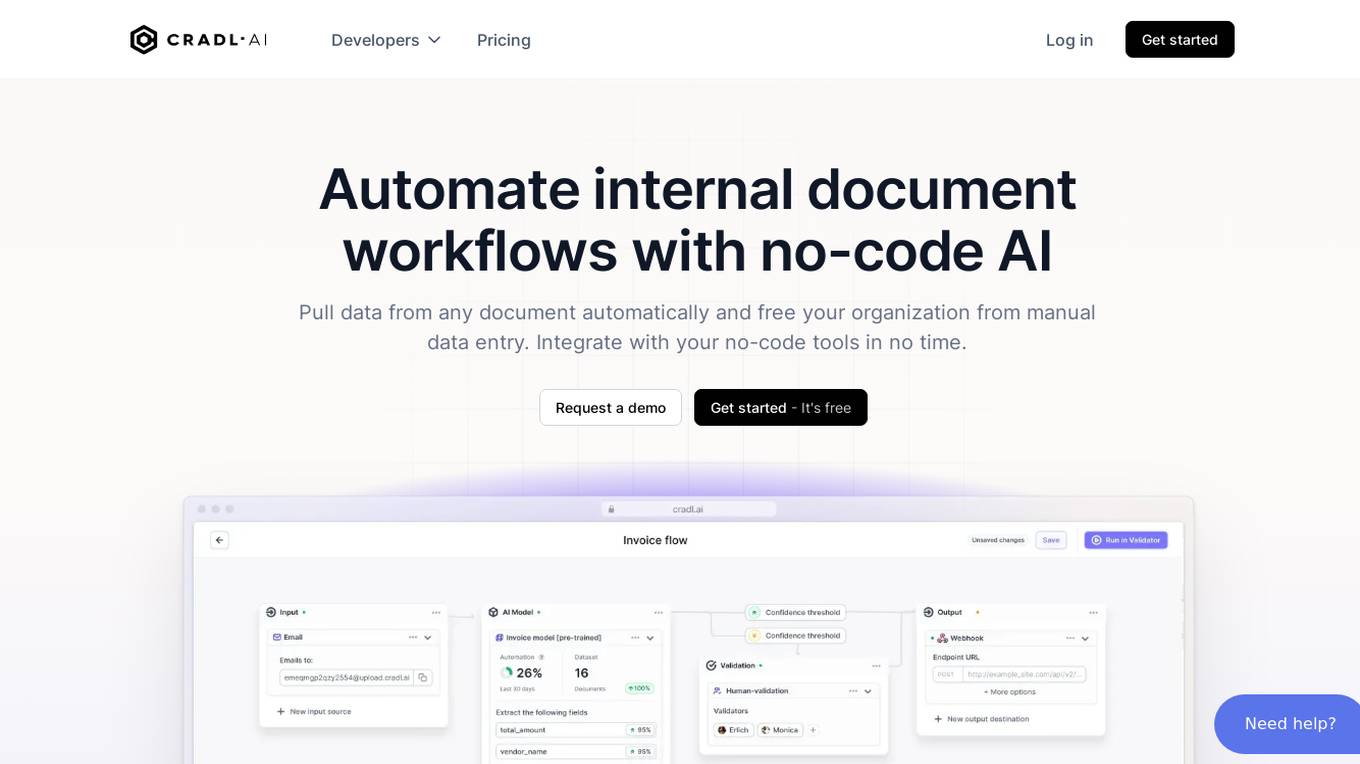
Cradl AI
Cradl AI is an AI-powered tool designed to automate document workflows with no-code AI. It enables users to extract data from any document automatically, integrate with no-code tools, and build custom AI models through an easy-to-use interface. The tool empowers automation teams across industries by extracting data from complex document layouts, regardless of language or structure. Cradl AI offers features such as line item extraction, fine-tuning AI models, human-in-the-loop validation, and seamless integration with automation tools. It is trusted by organizations for business-critical document automation, providing enterprise-level features like encrypted transmission, GDPR compliance, secure data handling, and auto-scaling.
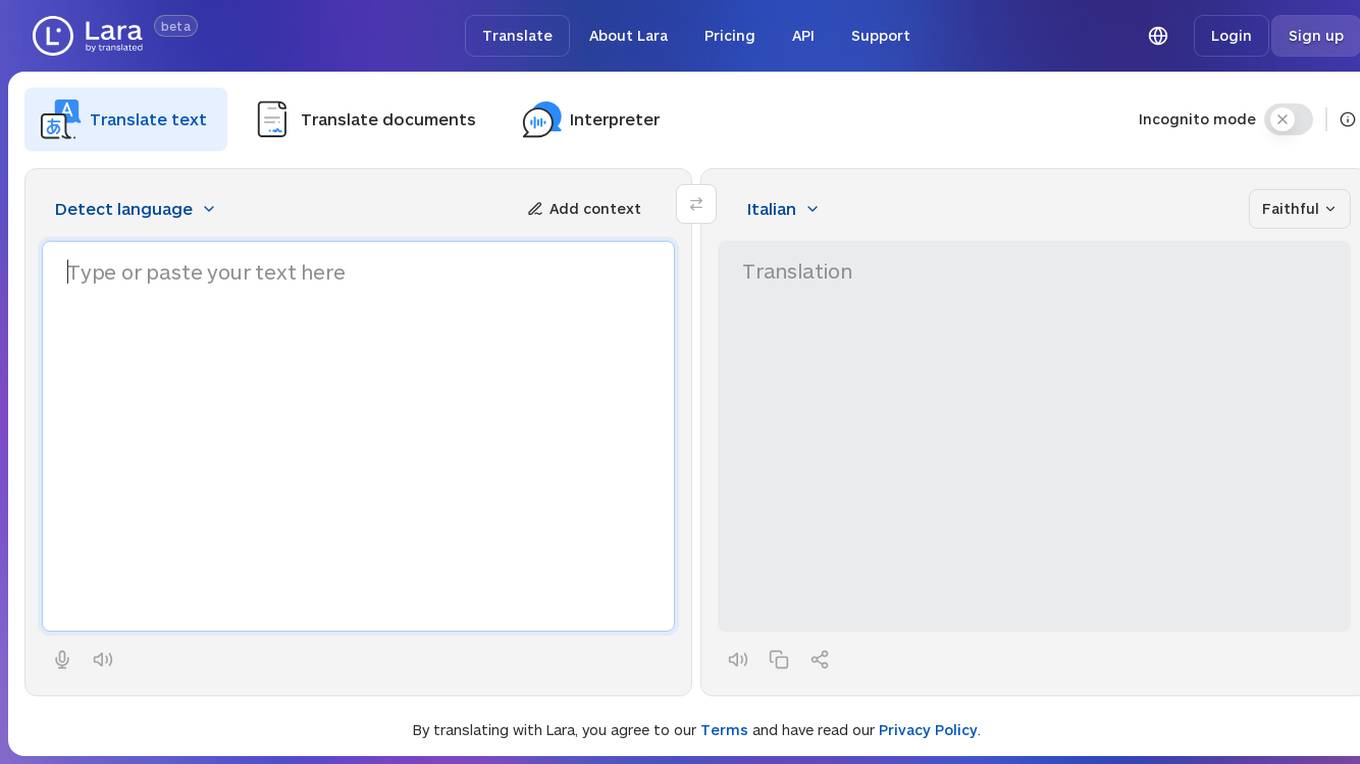
Lara Translate
Lara Translate is a cutting-edge AI translation tool that offers precise, fluid, and creative translations for various types of content. It ensures accurate translations while maintaining the original structure and meaning of the text. Users can translate text, documents, and even use an interpreter in Incognito mode. With support for multiple languages, Lara Translate is a reliable solution for individuals and businesses seeking high-quality translations.
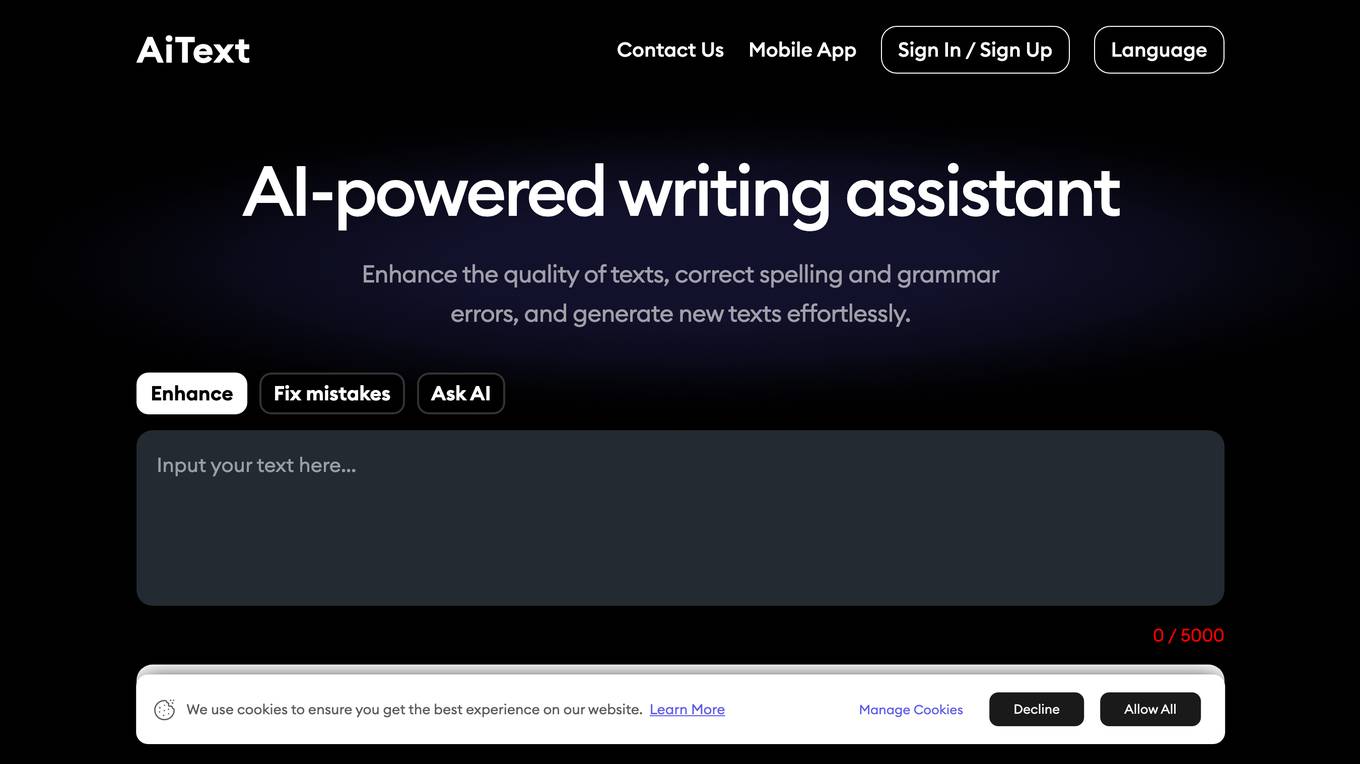
AiText
AiText is an AI-powered writing assistant that enhances the quality of texts, corrects spelling and grammar errors, and generates new texts effortlessly. It offers a range of features including vocabulary enhancement, sentence structure optimization, grammar and spell checking, and text generation. The application is versatile and can be used for various purposes such as creating social media posts, emails, articles, reports, and professional documents. It is designed to improve communication clarity, accelerate writing tasks, and enhance writing skills for academic and professional pursuits.
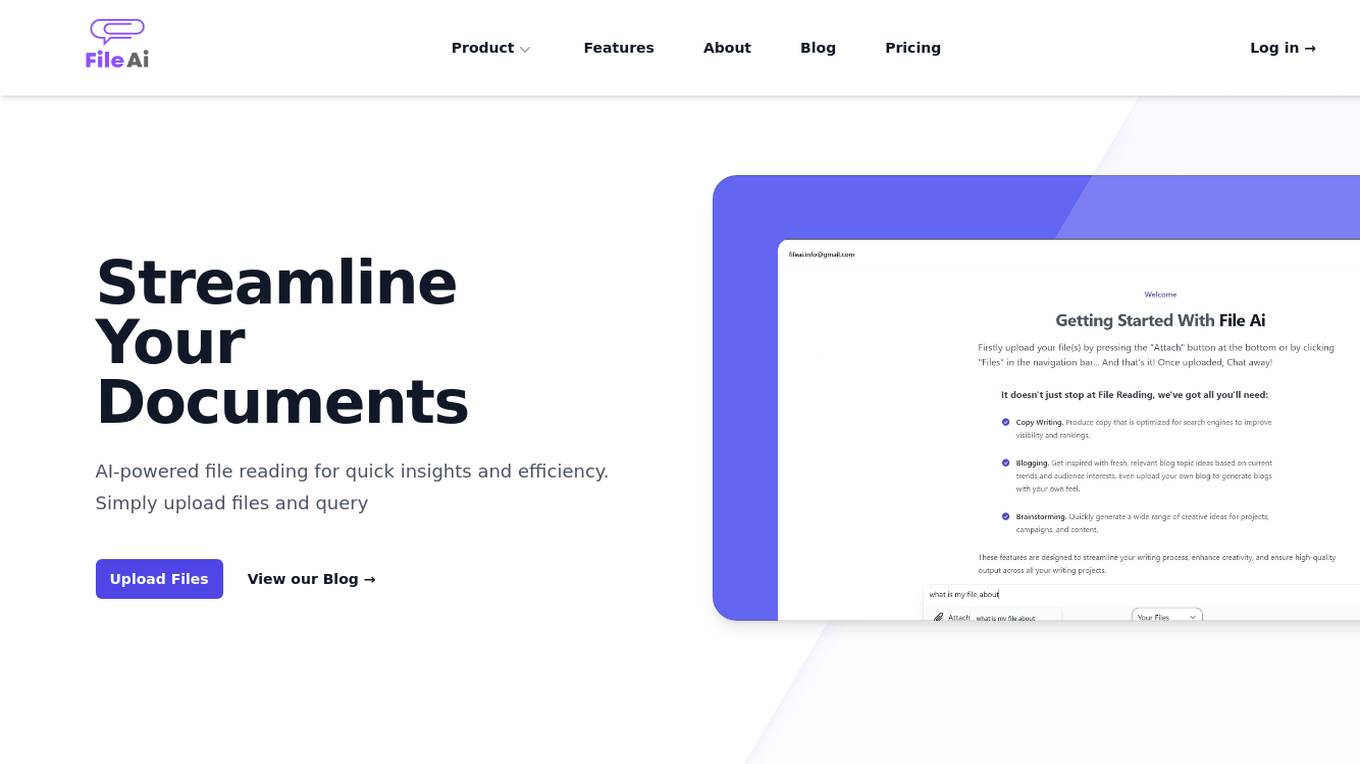
FileAI
The FileAI website offers an AI-powered file reading assistant that specializes in data extraction from structured documents like financial statements, legal documents, and research papers. It automates tasks related to legal and compliance review, finance and accounting report preparation, and research and academia support. The tool aims to streamline document processing, enhance learning processes, and improve research efficiency. With features like summarizing complex texts, extracting key information, and detecting plagiarism, FileAI caters to users in various industries and educational fields. The platform prioritizes data security and user privacy, ensuring that data is used solely for its intended purpose and deleted after 7 days of non-use.
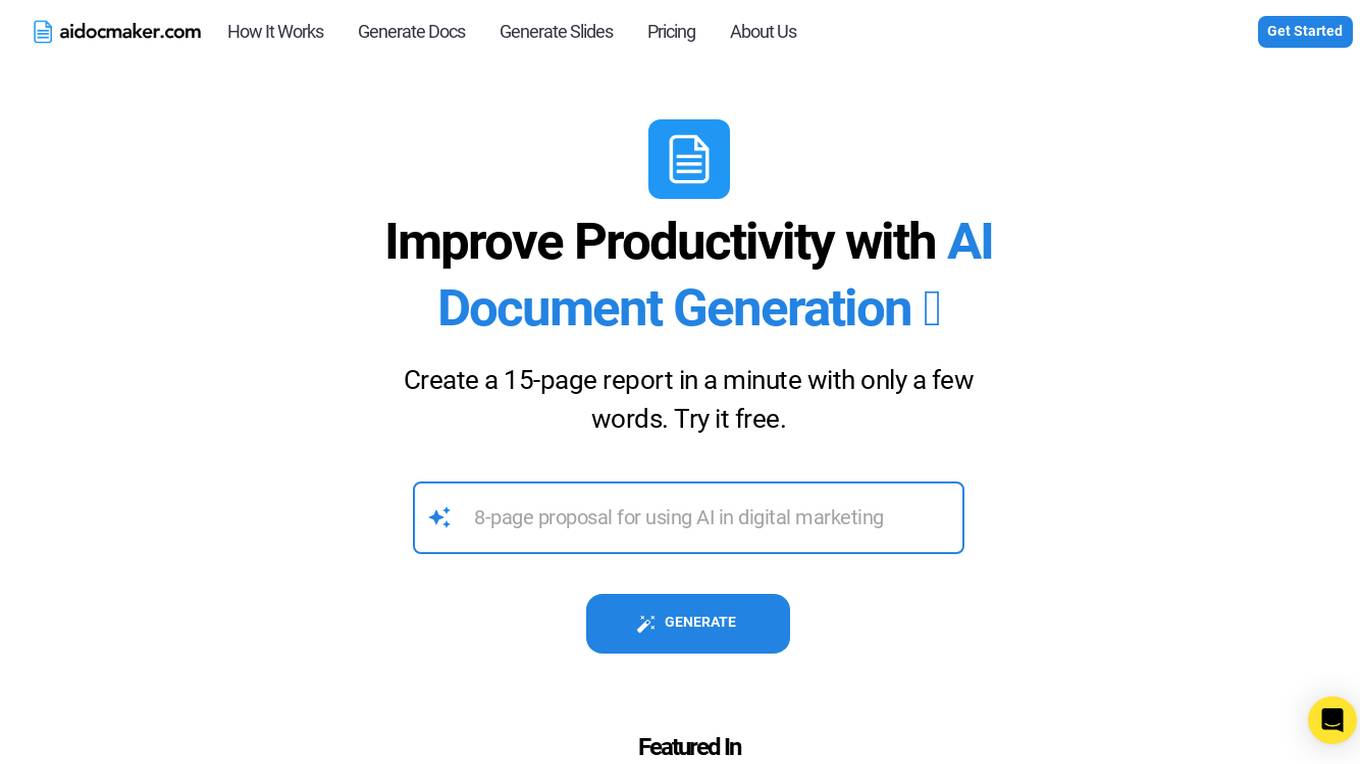
AI Document Creator
AI Document Creator is an innovative tool that leverages artificial intelligence to assist users in generating various types of documents efficiently. The application utilizes advanced algorithms to analyze input data and create well-structured documents tailored to the user's needs. With AI Document Creator, users can save time and effort in document creation, ensuring accuracy and consistency in their outputs. The tool is user-friendly and accessible, making it suitable for individuals and businesses seeking to streamline their document creation process.
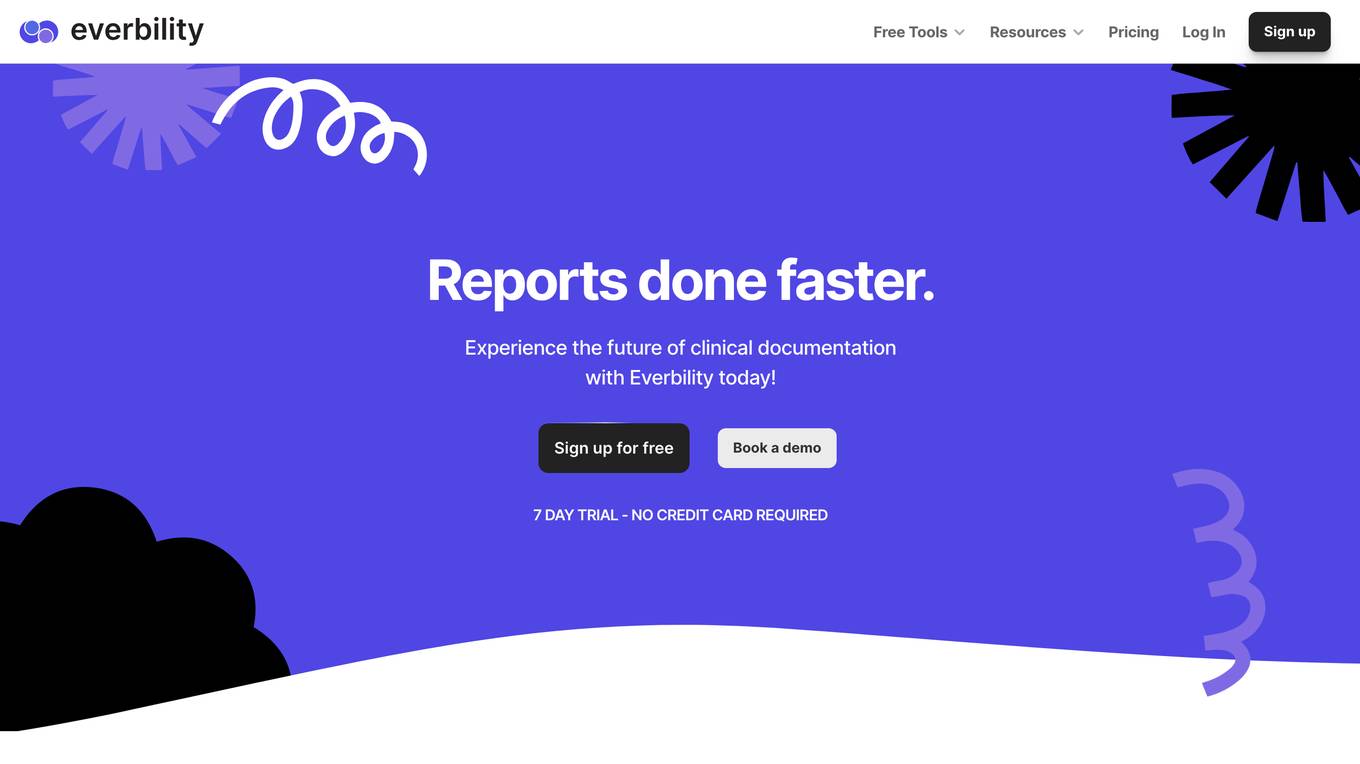
Everbility
Everbility is an AI-powered clinical documentation tool designed for Allied Health Professionals. It helps in writing reports, synthesizing client notes, brainstorming ideas, and focusing on client care. The tool saves time by generating progress notes, letters, and assessment reports, while ensuring data privacy and compliance with regulations like HIPAA and Australian Privacy Principles.
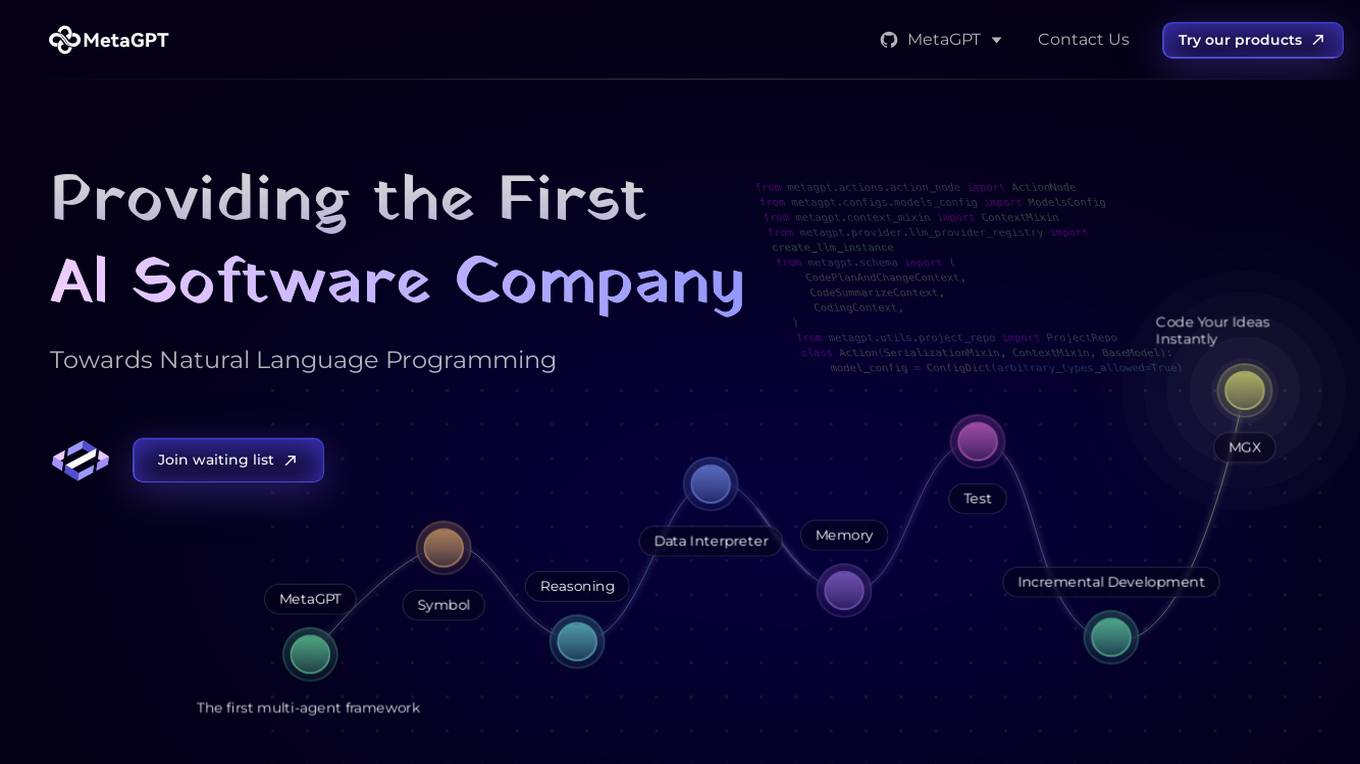
MetaGPT
MetaGPT is an advanced AI tool that leverages the power of natural language processing to generate human-like text. It uses the latest deep learning models to understand and produce text in various styles and tones. With MetaGPT, users can easily create content for articles, essays, emails, and more with just a few clicks. The tool is designed to assist writers, marketers, students, and anyone looking to enhance their writing productivity and creativity.
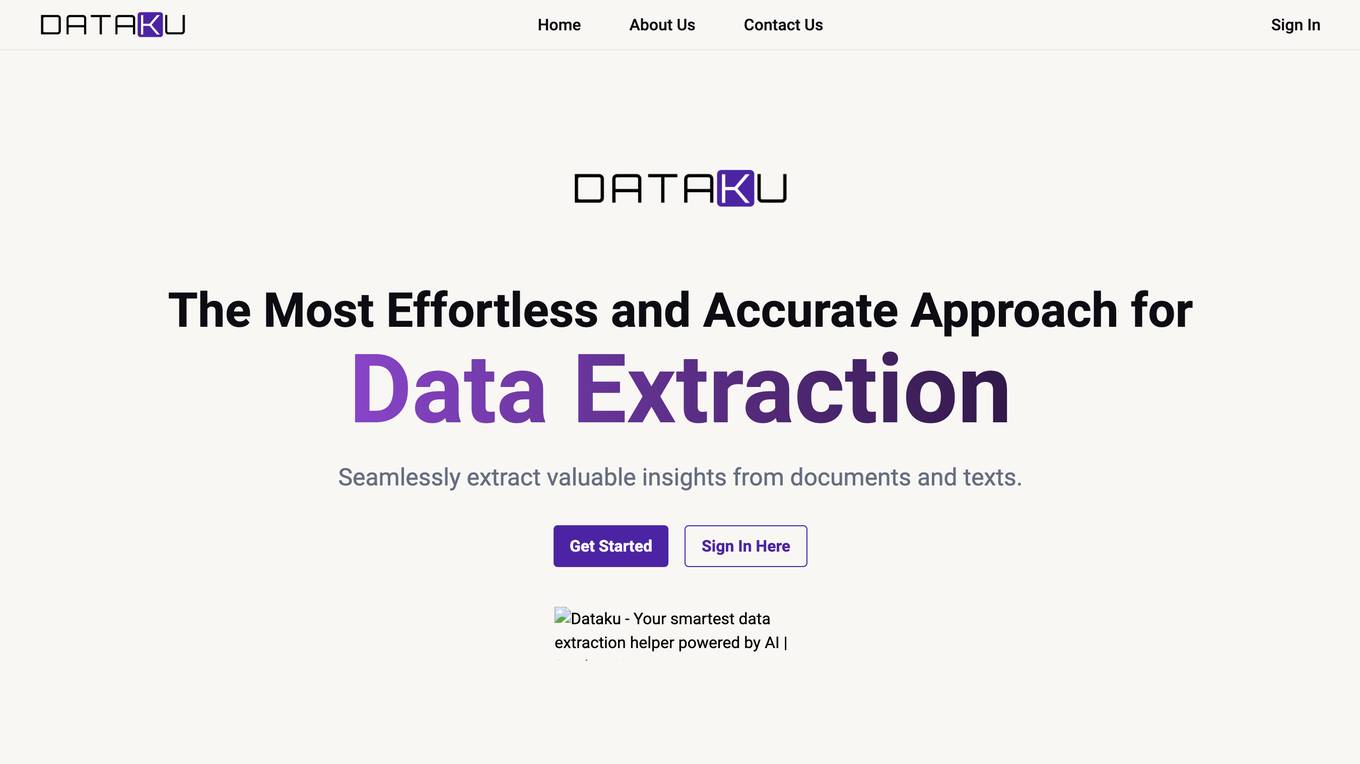
Dataku.ai
Dataku.ai is an advanced data extraction and analysis tool powered by AI technology. It offers seamless extraction of valuable insights from documents and texts, transforming unstructured data into structured, actionable information. The tool provides tailored data extraction solutions for various needs, such as resume extraction for streamlined recruitment processes, review insights for decoding customer sentiments, and leveraging customer data to personalize experiences. With features like market trend analysis and financial document analysis, Dataku.ai empowers users to make strategic decisions based on accurate data. The tool ensures precision, efficiency, and scalability in data processing, offering different pricing plans to cater to different user needs.
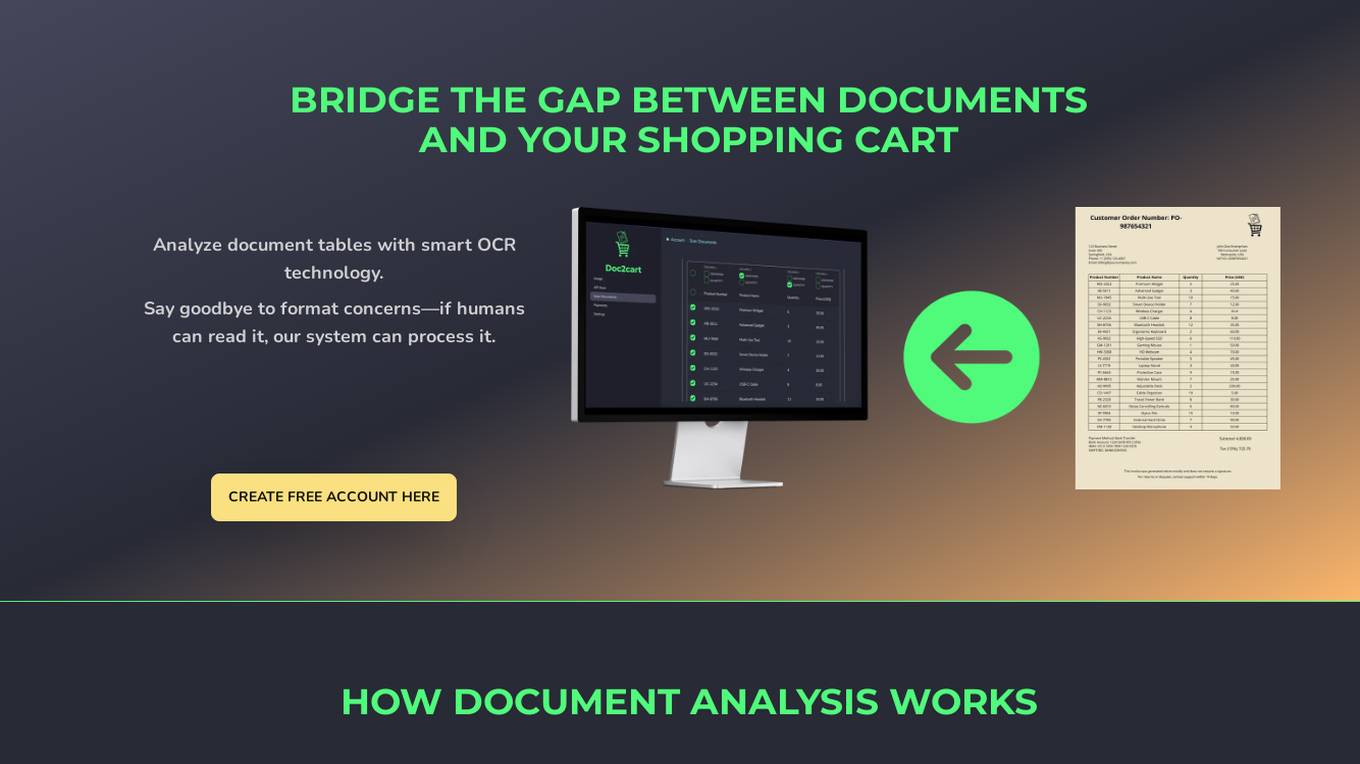
Doc2cart
Doc2cart is an AI-powered platform that automates the extraction of product information from various documents such as invoices, price lists, and catalogs. It utilizes advanced OCR technology to convert paper or digital documents into structured e-commerce data that can be seamlessly integrated into popular e-commerce platforms and shopping carts. The platform focuses on data extraction and processing, providing users with the flexibility to utilize the extracted data in their systems efficiently.
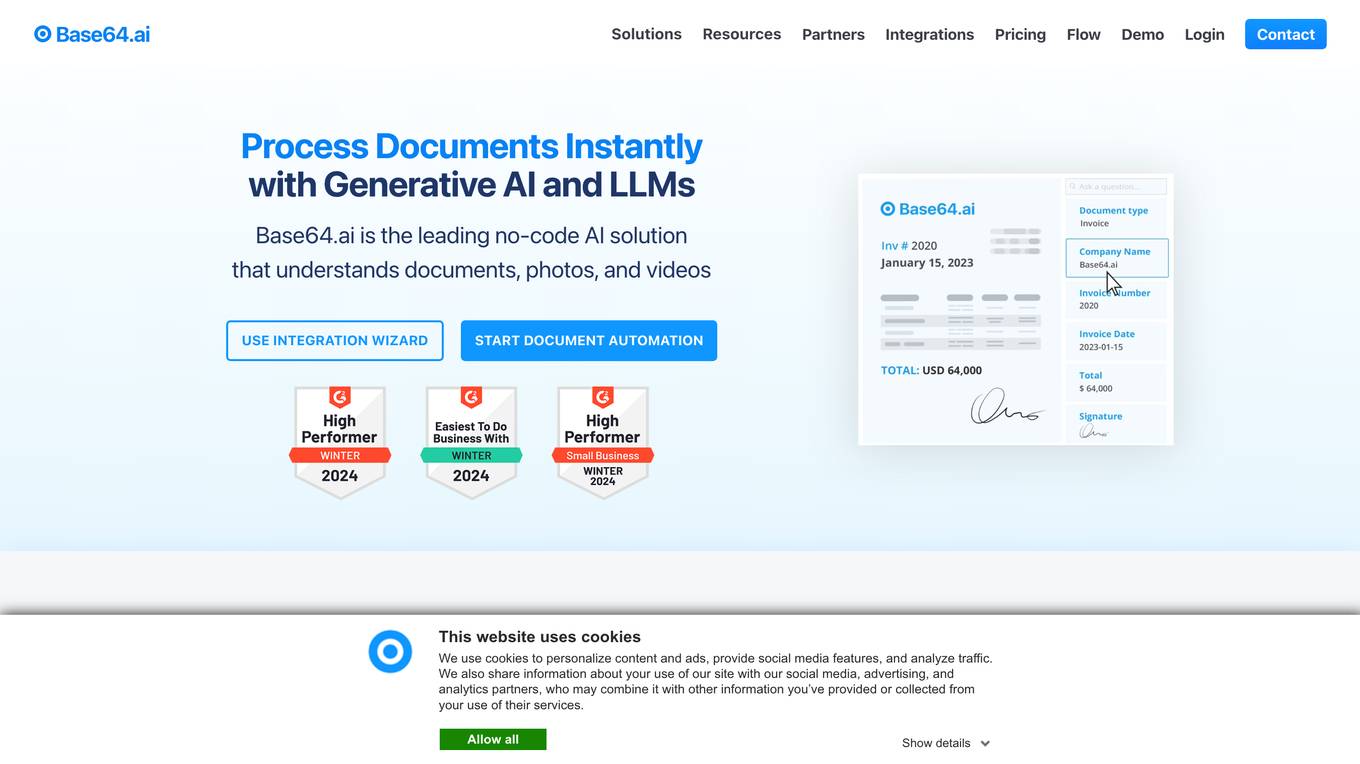
Base64.ai
Base64.ai is an AI-powered document intelligence platform that offers a comprehensive solution for document processing and data extraction. It leverages advanced AI technology to streamline workflows, improve accuracy, and drive digital transformation for organizations. With features like Generative AI agents, workflow automation, and data intelligence, Base64.ai enables users to extract insights from structured and unstructured documents with ease. The platform is designed to enhance efficiency, reduce processing time, and increase productivity by eliminating manual document processing tasks.

DocuPipe
DocuPipe is an AI-powered document extraction tool that helps businesses convert various types of documents into structured data. It uses artificial intelligence to extract information from documents such as invoices, medical records, insurance claims, and more. DocuPipe offers custom definitions tailored for different businesses to accurately extract required data. The tool ensures security and compliance by encrypting documents and being GDPR and HIPAA compliant. With features like OCR, document standardization, and document splitting, DocuPipe provides accuracy, flexibility, and speed in handling documents.
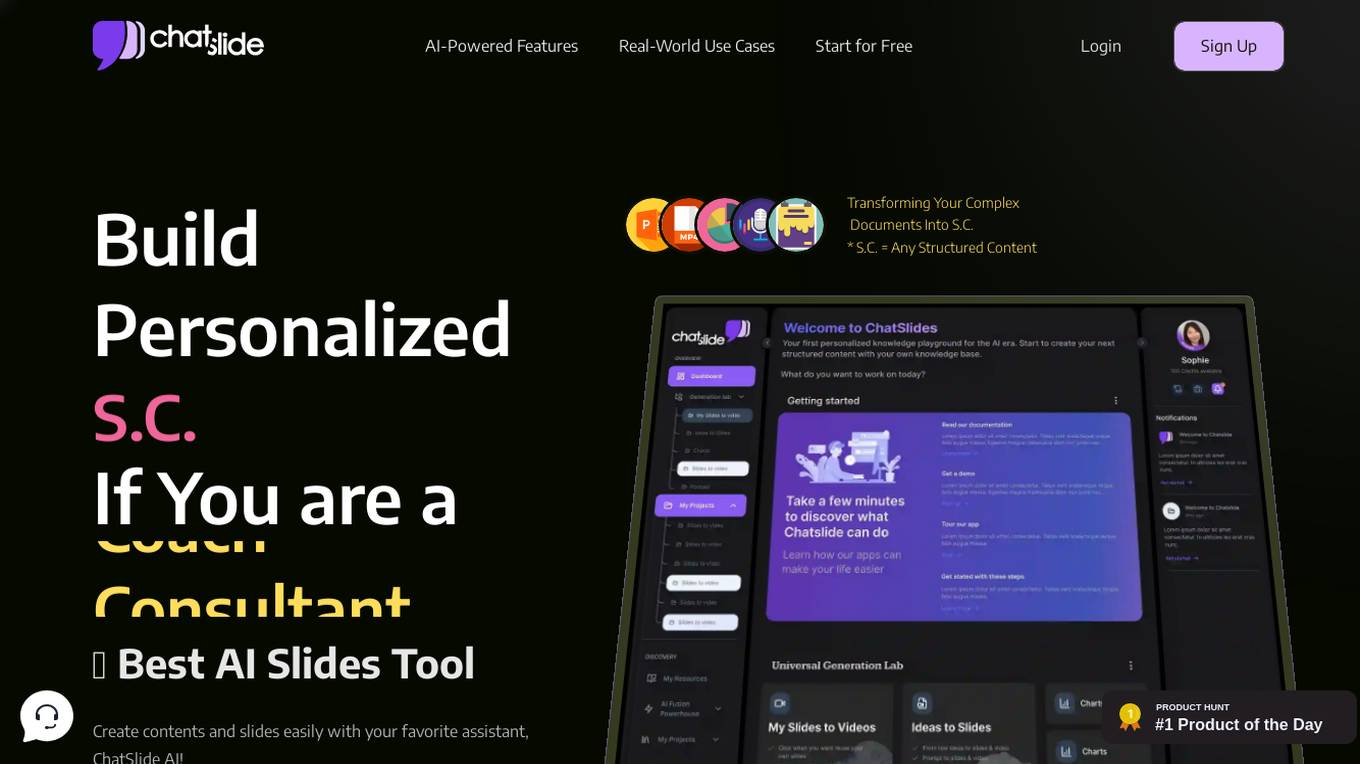
ChatSlide
ChatSlide is an AI workspace for knowledge sharing that offers AI-powered features to create personalized slides, videos, charts, posters, and podcasts. It allows users to easily generate content and slides with the help of ChatSlide AI, supporting multimodal documents. Trusted by users in 170 countries and 29 languages, ChatSlide transforms complex documents into structured content, offering real-world use cases for industries like healthcare. With flexible pricing plans, ChatSlide aims to revolutionize content creation by leveraging AI technology.
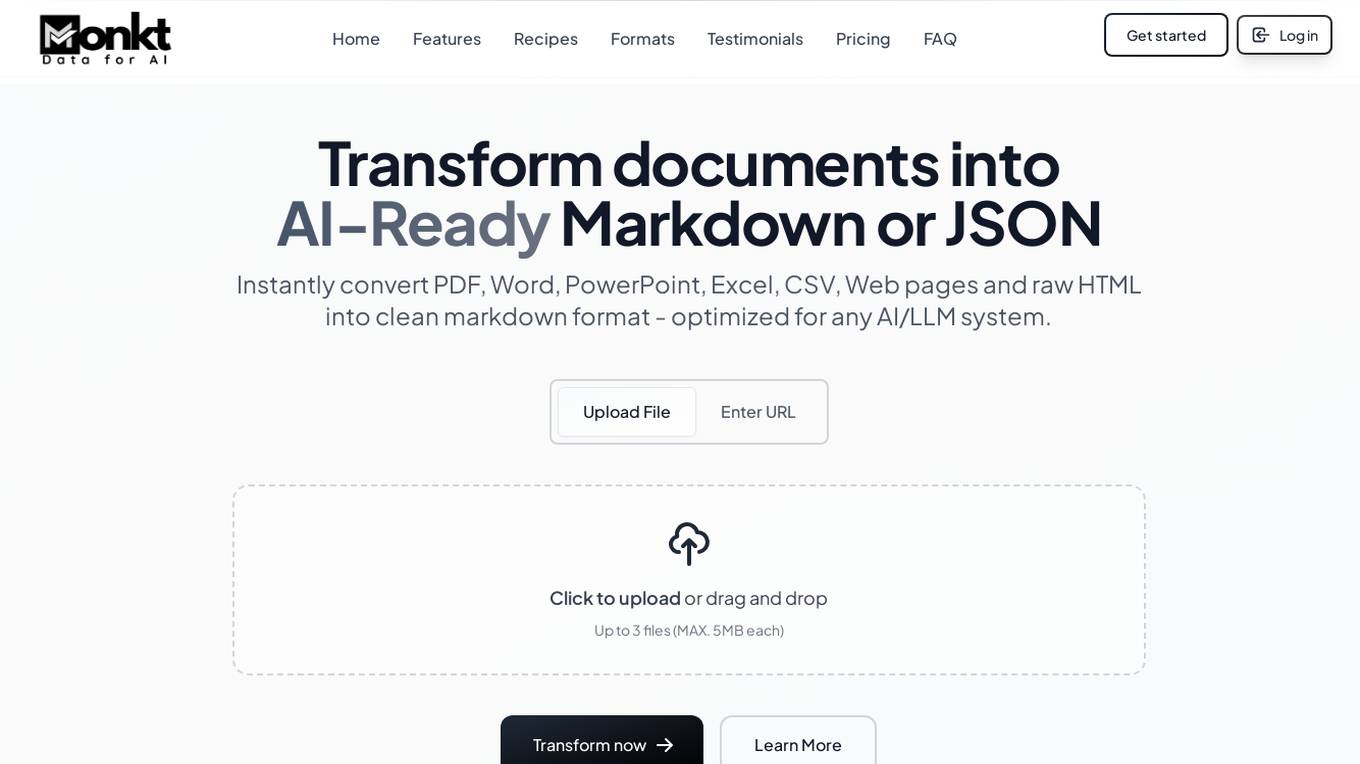
Monkt
Monkt is a powerful document processing platform that transforms various document formats into AI-ready Markdown or structured JSON. It offers features like instant conversion of PDF, Word, PowerPoint, Excel, CSV, web pages, and raw HTML into clean markdown format optimized for AI/LLM systems. Monkt enables users to create intelligent applications, custom AI chatbots, knowledge bases, and training datasets. It supports batch processing, image understanding, LLM optimization, and API integration for seamless document processing. The platform is designed to handle document transformation at scale, with support for multiple file formats and custom JSON schemas.
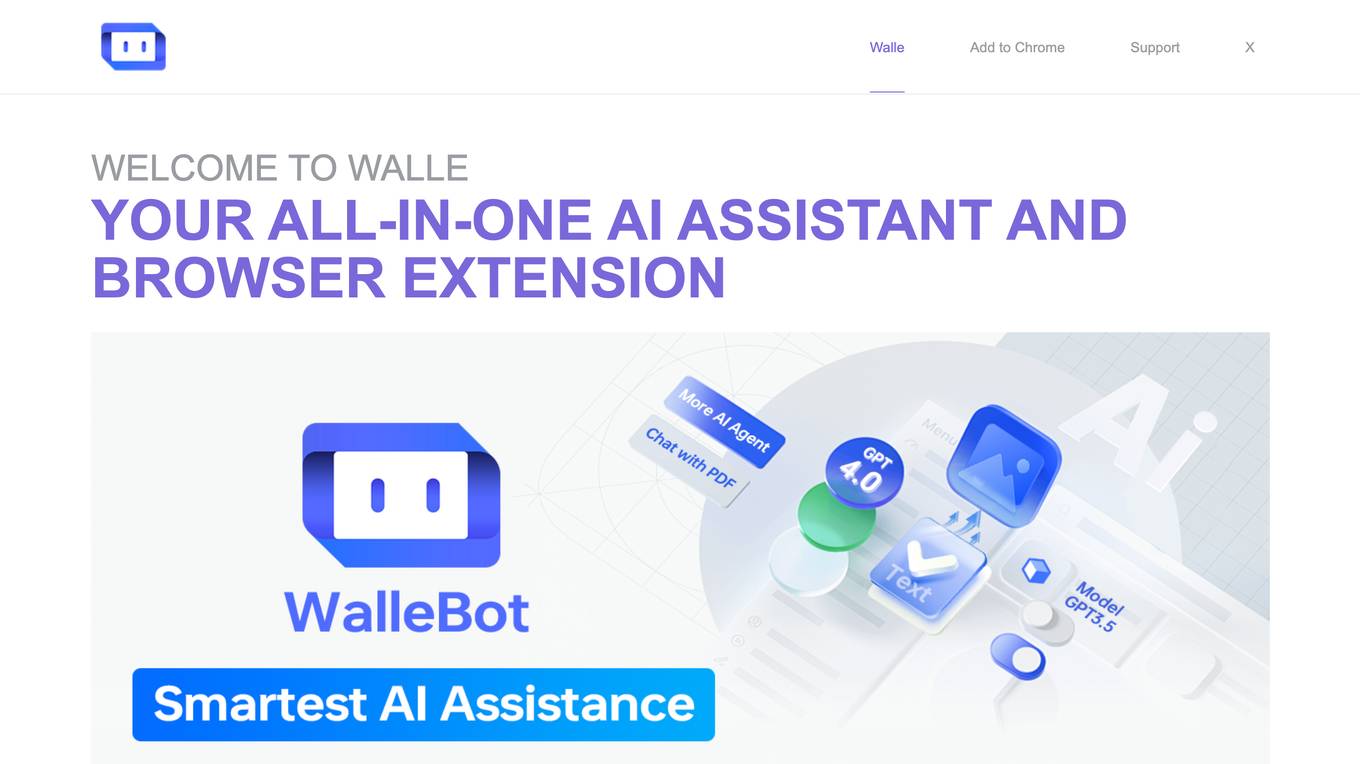
Walle
Walle is an all-in-one AI assistant and browser extension that provides a range of features to enhance your digital experience. It includes a chatbot for instant problem-solving, an AI reader for summarizing and understanding text, an AI writer for generating human-like content, a chat PDF feature for summarizing and translating PDF documents, and image creation and reading capabilities. Walle is seamlessly integrated into Chrome, Safari, and Edge browsers, making it your indispensable companion for navigating the digital world.
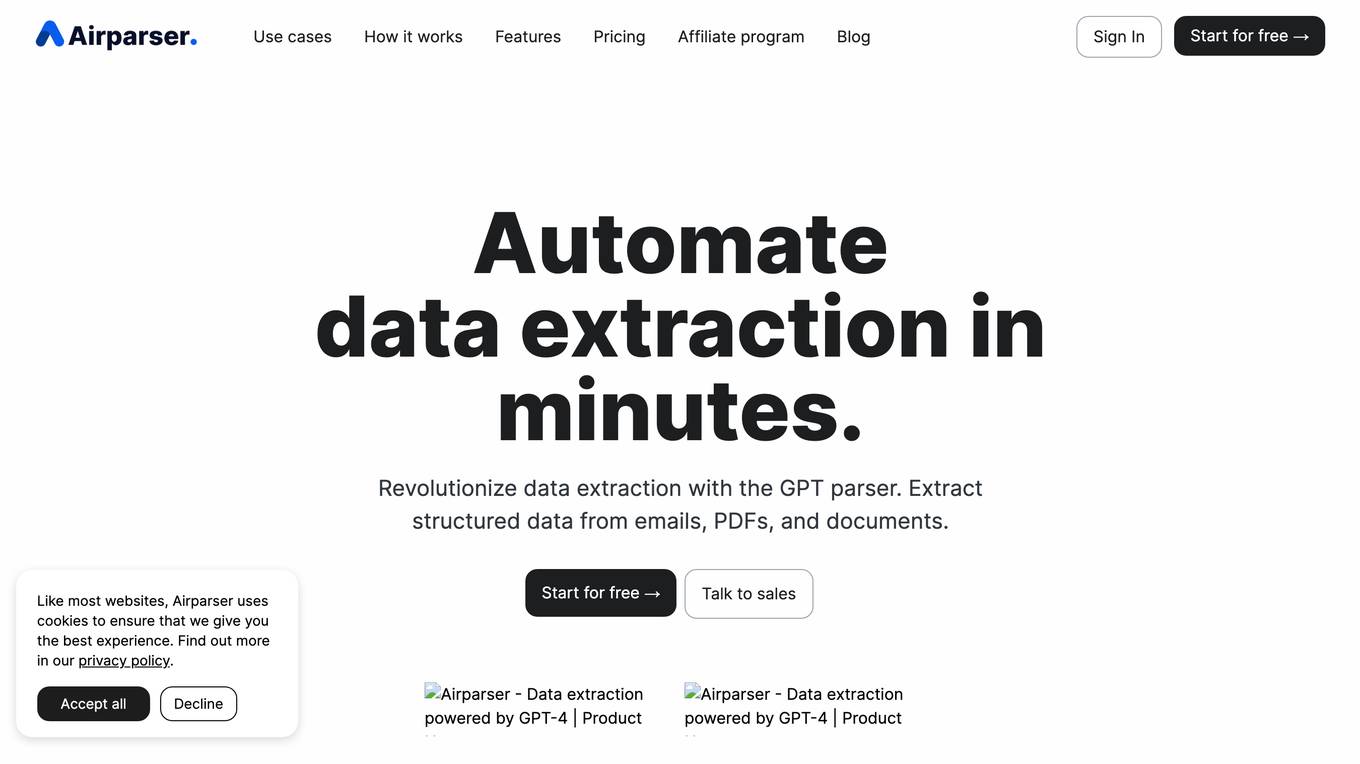
Airparser
Airparser is an AI-powered email and document parser tool that revolutionizes data extraction by utilizing the GPT parser engine. It allows users to automate the extraction of structured data from various sources such as emails, PDFs, documents, and handwritten texts. With features like automatic extraction, export to multiple platforms, and support for multiple languages, Airparser simplifies data extraction processes for individuals and businesses. The tool ensures data security and offers seamless integration with other applications through APIs and webhooks.
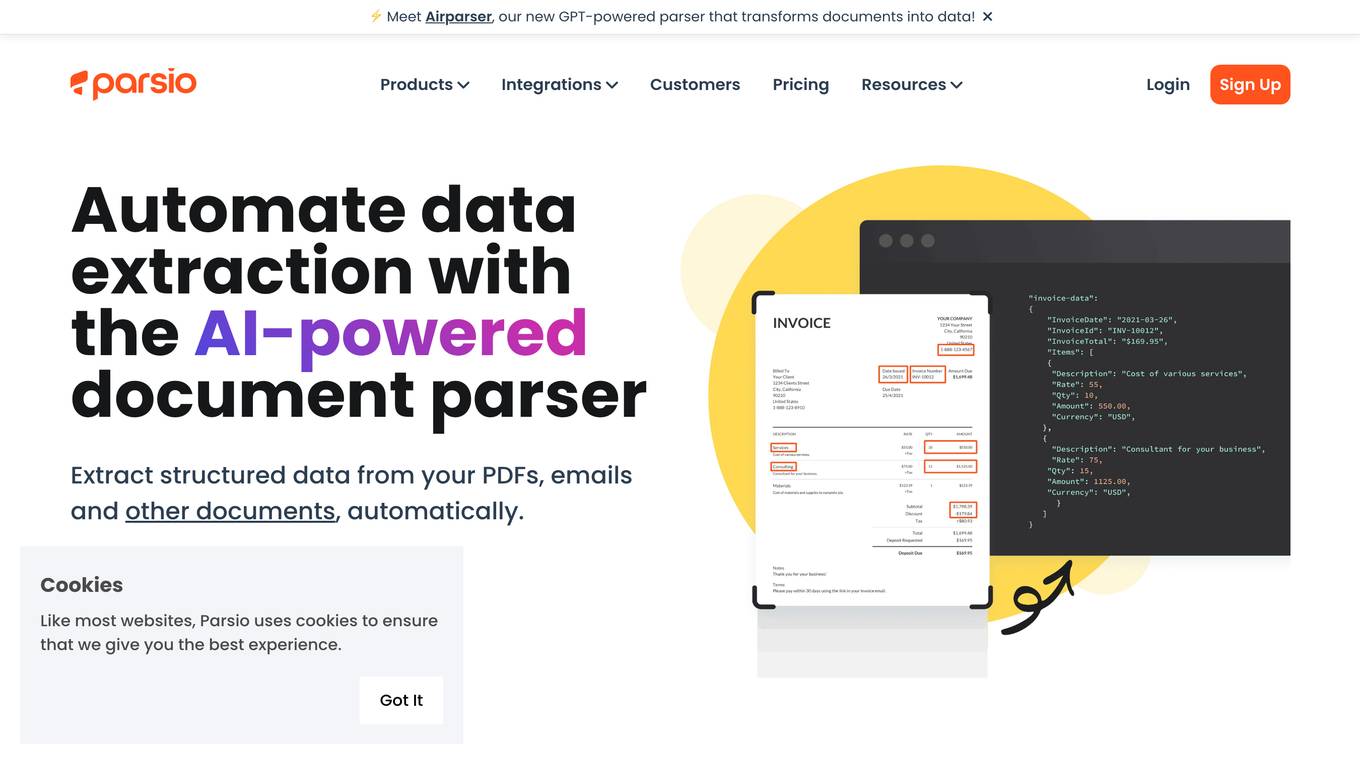
Parsio
Parsio is an AI-powered document parser that can extract structured data from PDFs, emails, and other documents. It uses natural language processing to understand the context of the document and identify the relevant data points. Parsio can be used to automate a variety of tasks, such as extracting data from invoices, receipts, and emails.
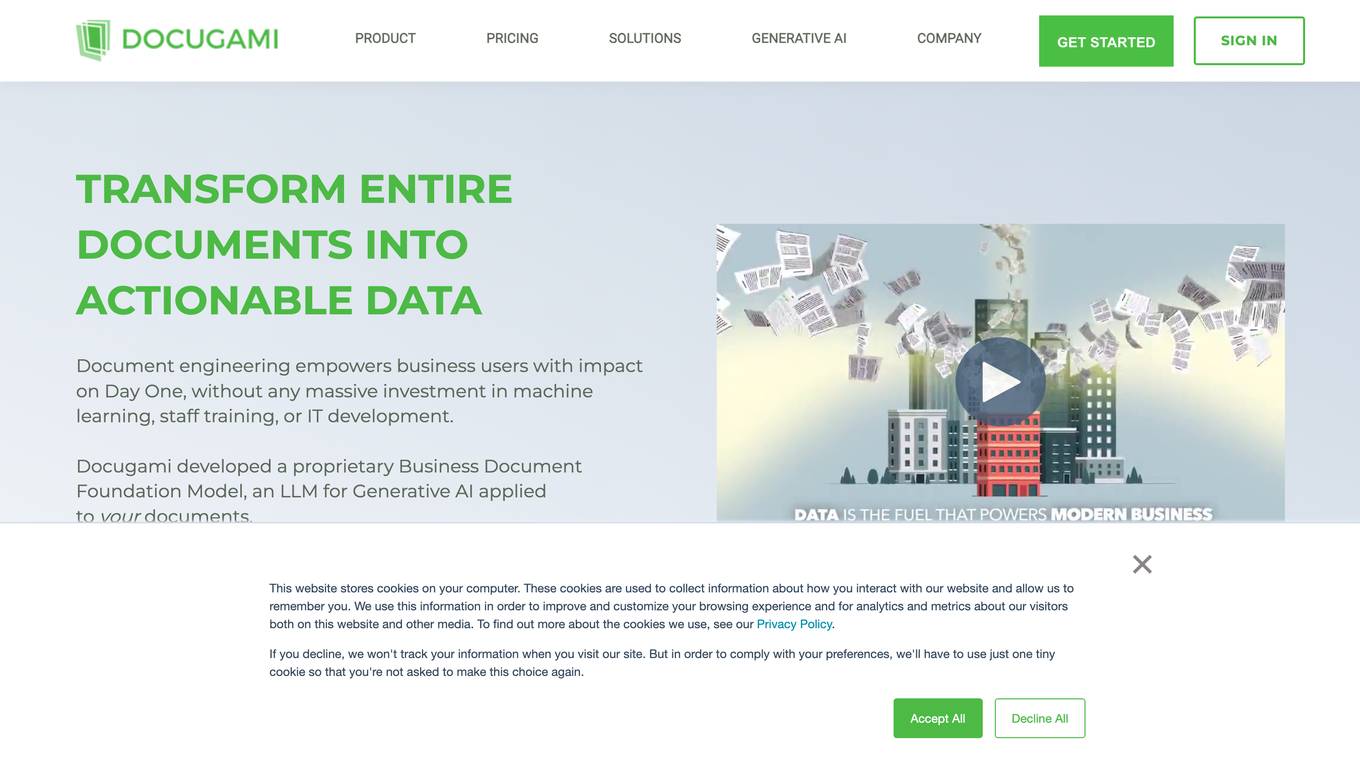
Docugami
Docugami is an AI-powered document engineering platform that enables business users to extract, analyze, and automate data from various types of documents. It empowers users with immediate impact without the need for extensive machine learning investments or IT development. Docugami's proprietary Business Document Foundation Model leverages Generative AI to transform unstructured text into structured information, allowing users to unlock insights and drive business processes efficiently.
0 - Open Source AI Tools
20 - OpenAI Gpts
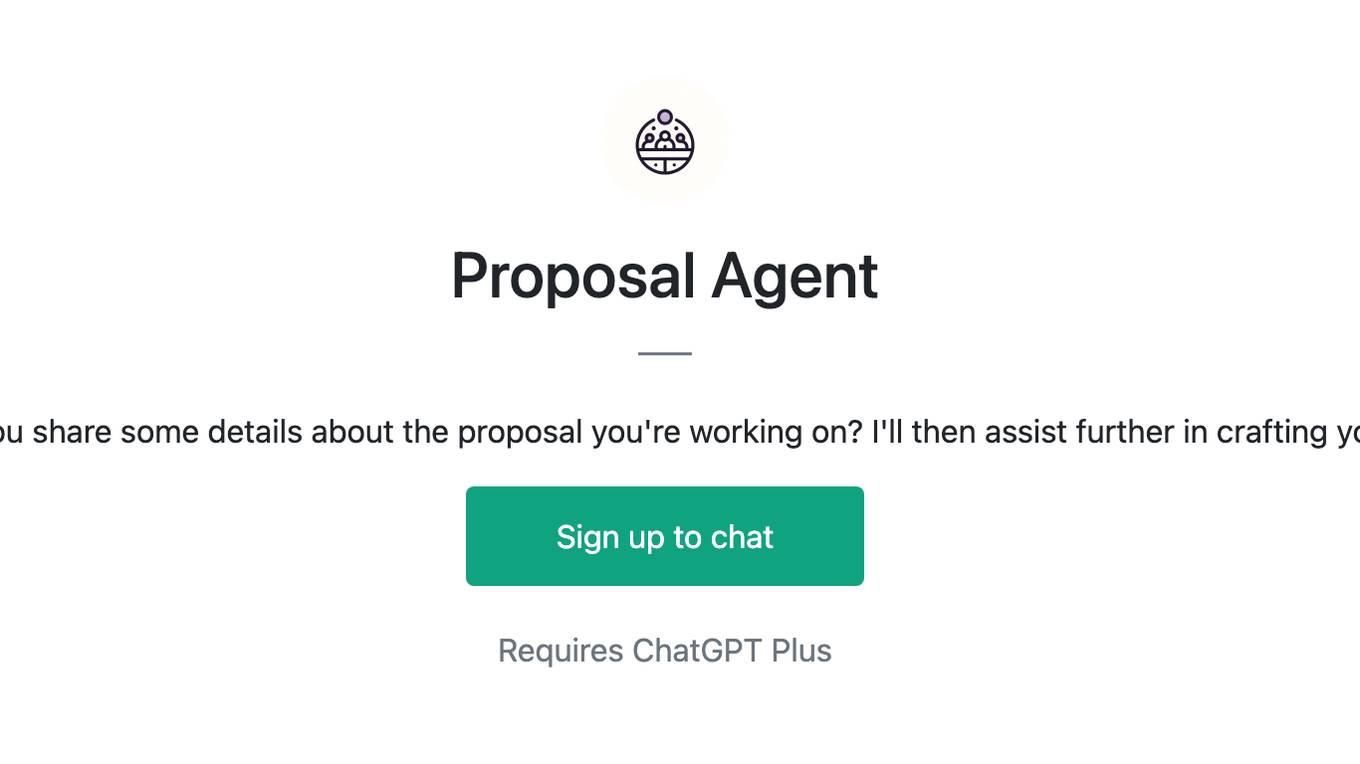
Proposal Agent
Hello! Could you share some details about the proposal you're working on? I'll then assist further in crafting your proposal.
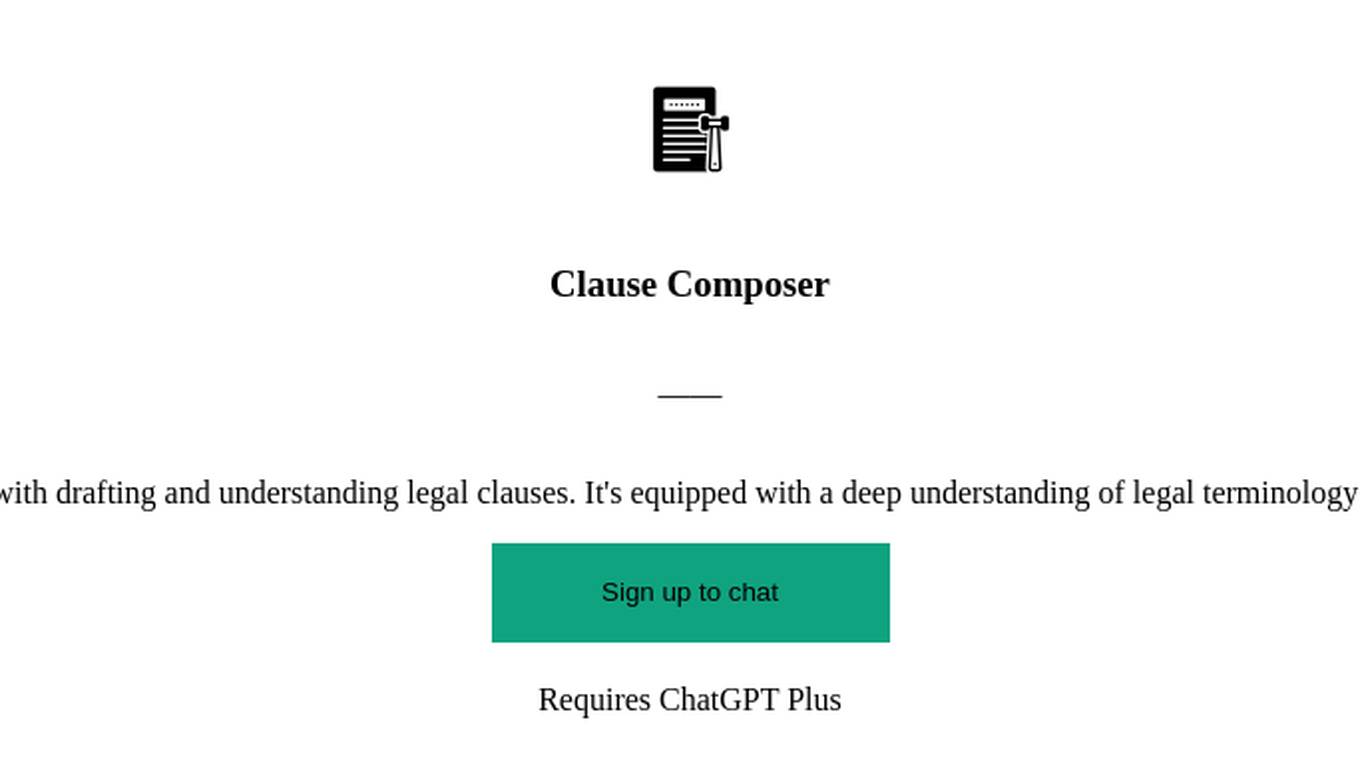
Clause Composer
specialized GPT designed to assist with drafting and understanding legal clauses. It's equipped with a deep understanding of legal terminology and the structure of legal documents.
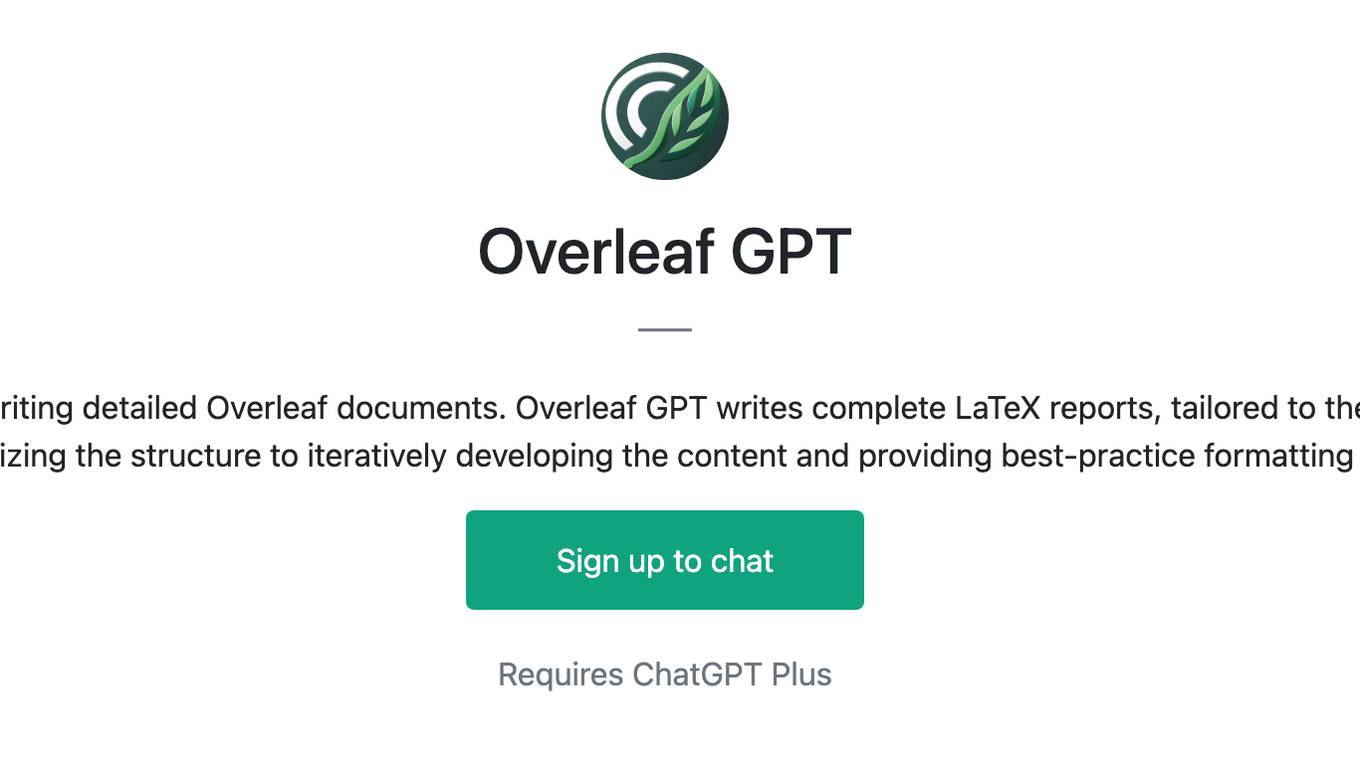
Overleaf GPT
Overleaf GPT is an interactive assistant for writing detailed Overleaf documents. Overleaf GPT writes complete LaTeX reports, tailored to the user’s requirements. This GPT starts with conceptualizing the structure to iteratively developing the content and providing best-practice formatting in LaTeX.

Master of Business Incorporation in the USA
Expert in answering Business Formation and Structure Legal queries for small businesses in the USA (Powered by LegalNow, ai.legalnow.xyz)
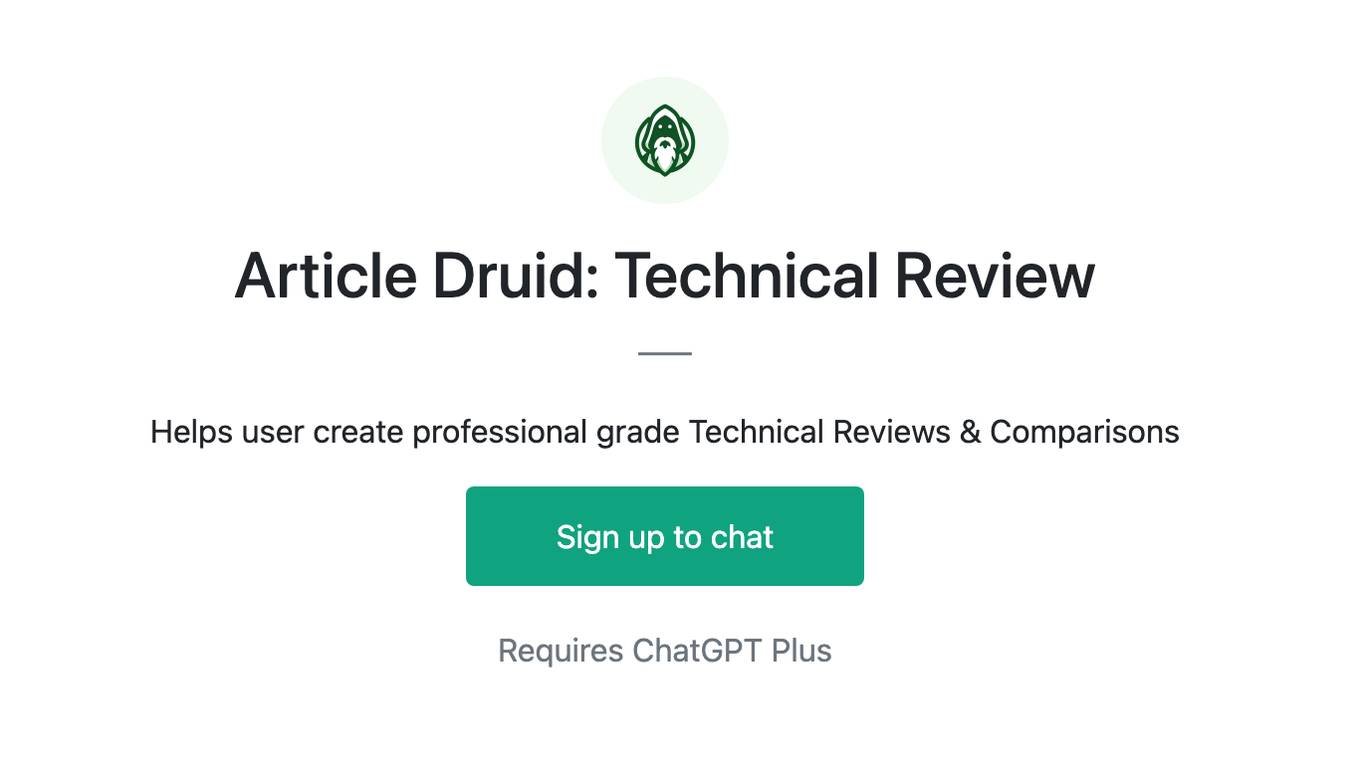
Article Druid: Technical Review
Helps user create professional grade Technical Reviews & Comparisons
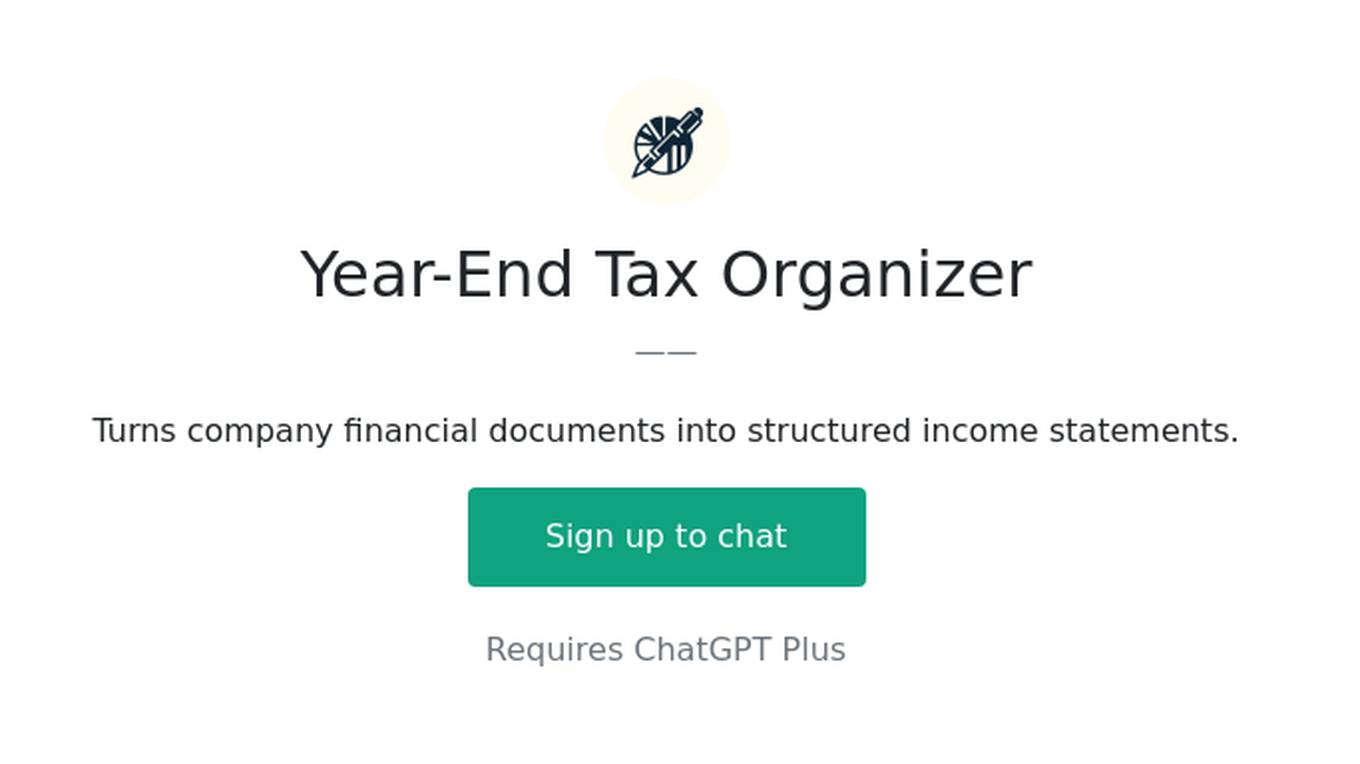
Year-End Tax Organizer
Turns company financial documents into structured income statements.

The Riggorous Guide to Structure
Irritating Northern advisor on UK building regs for structure. Based on Oliver Rigg and Approved Document A
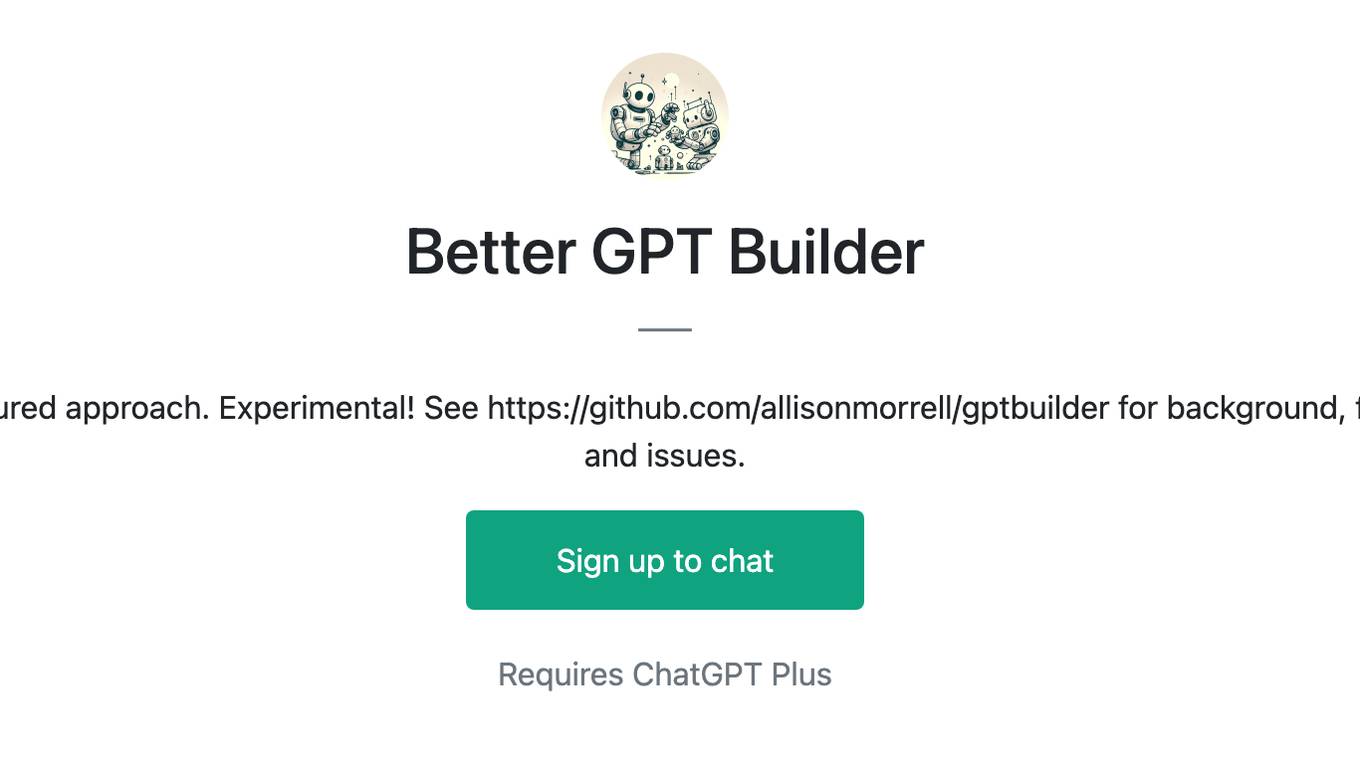
Better GPT Builder
Guides users in creating GPTs with a structured approach. Experimental! See https://github.com/allisonmorrell/gptbuilder for background, full prompts and files, and to submit ideas and issues.
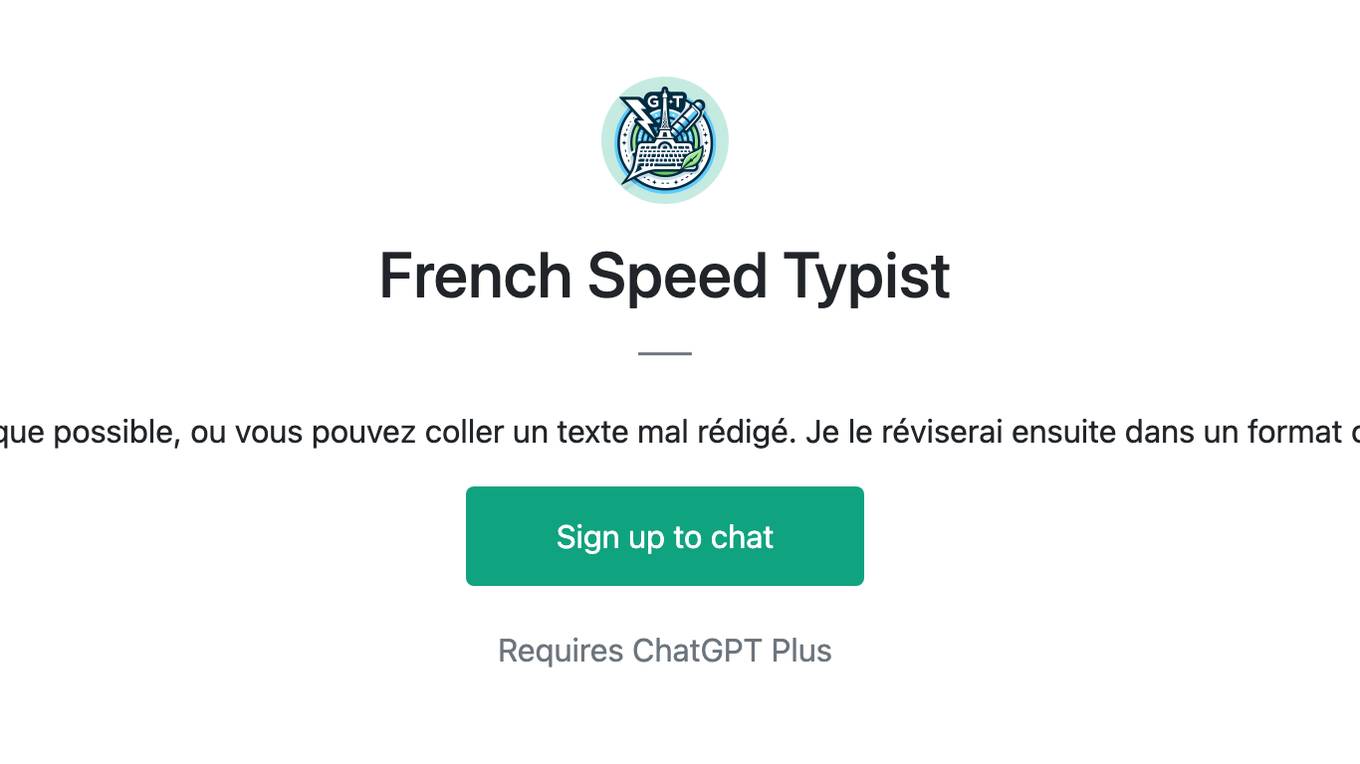
French Speed Typist
Veuillez taper aussi vite que possible, ou vous pouvez coller un texte mal rédigé. Je le réviserai ensuite dans un format correctement structuré
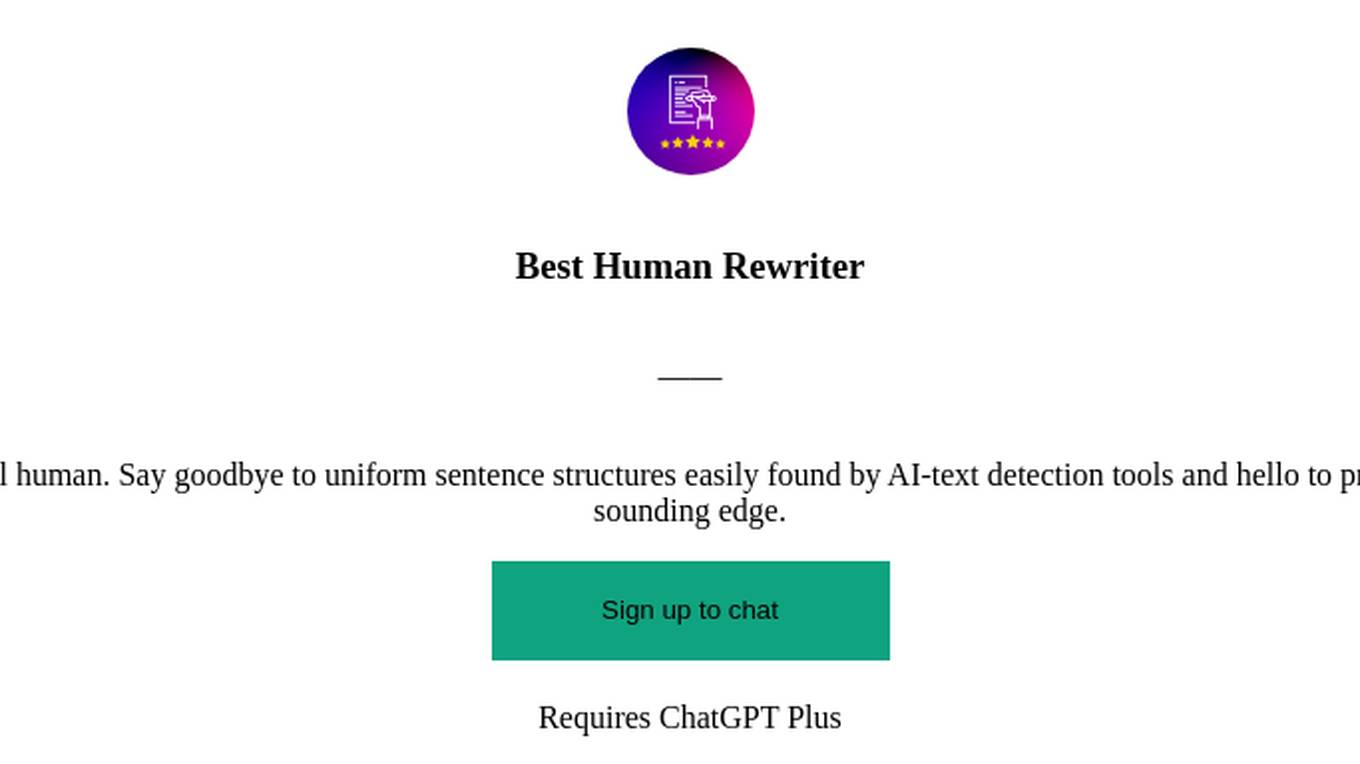
Best Human Rewriter
The ultimate tool to rewrite any text like a real human. Say goodbye to uniform sentence structures easily found by AI-text detection tools and hello to professional-grade content with a unique human-sounding edge.
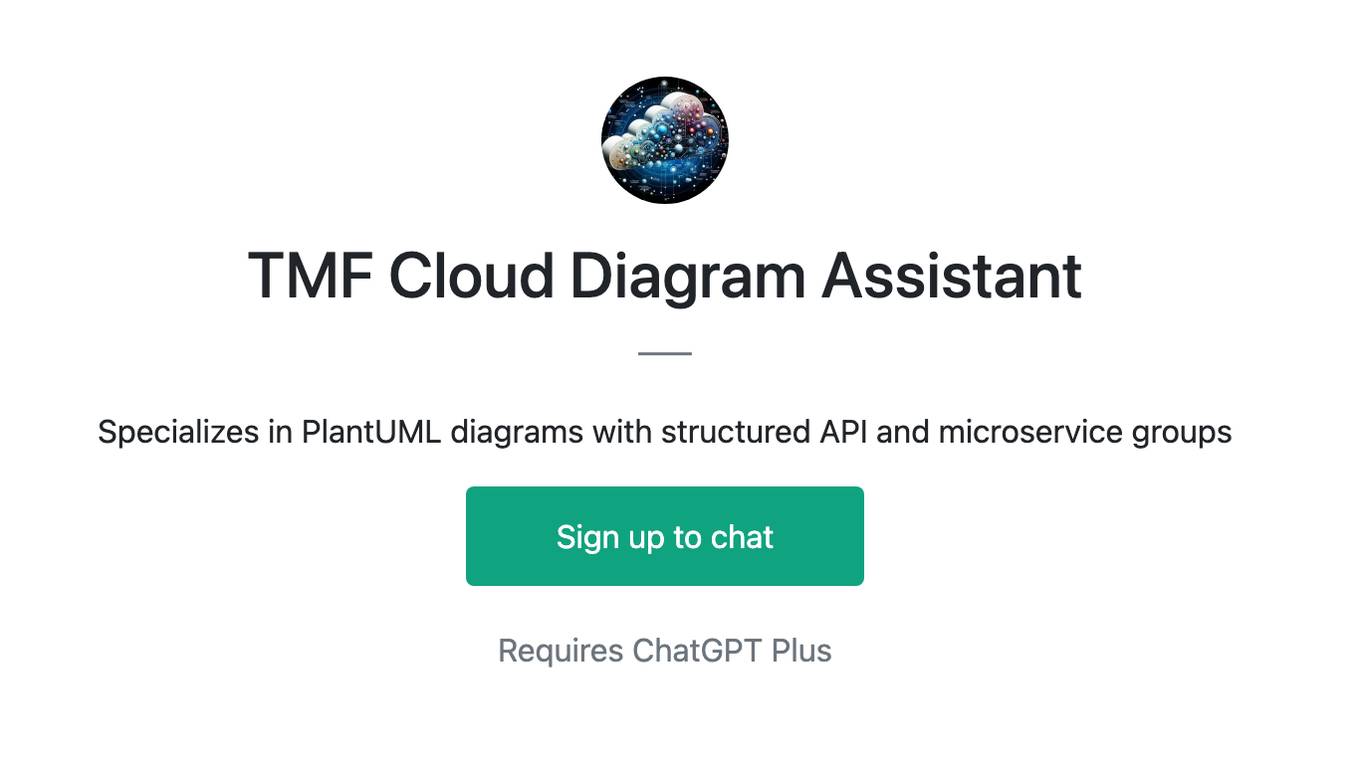
TMF Cloud Diagram Assistant
Specializes in PlantUML diagrams with structured API and microservice groups
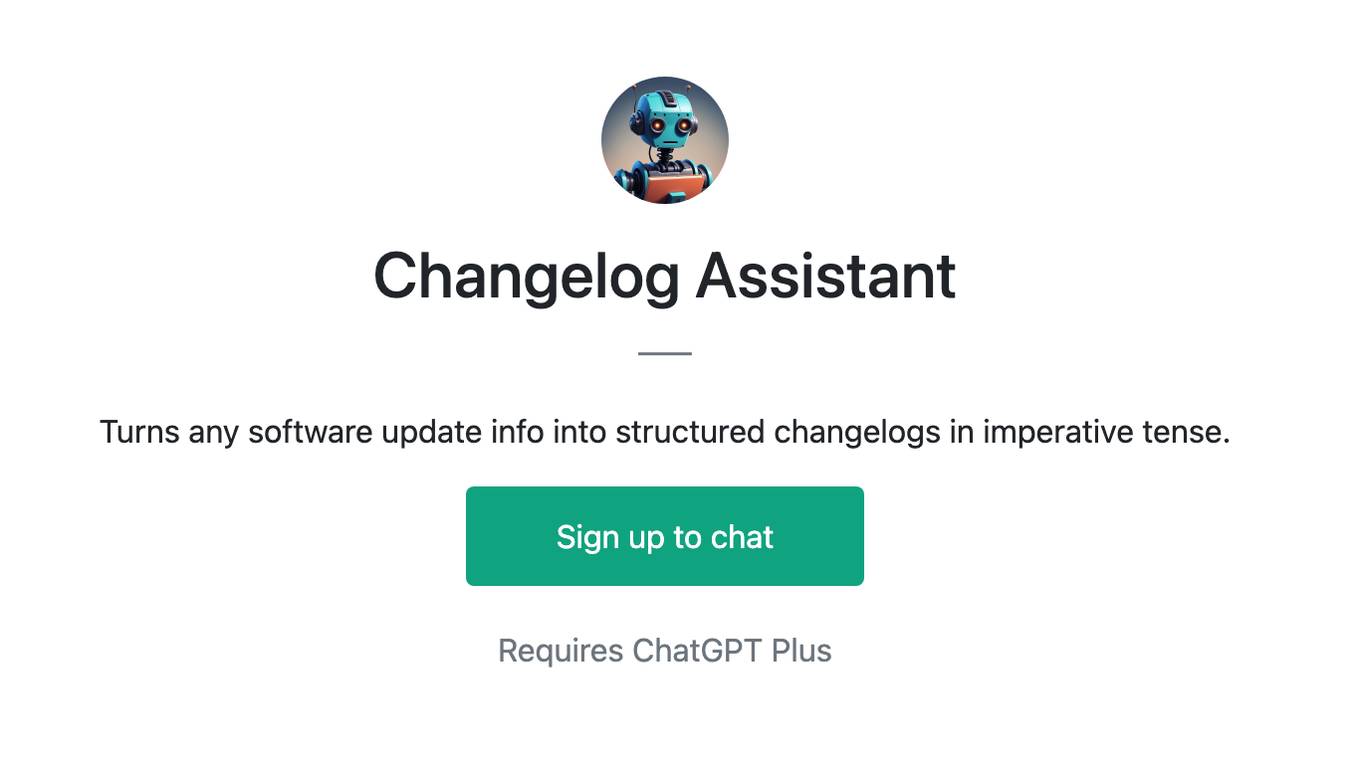
Changelog Assistant
Turns any software update info into structured changelogs in imperative tense.
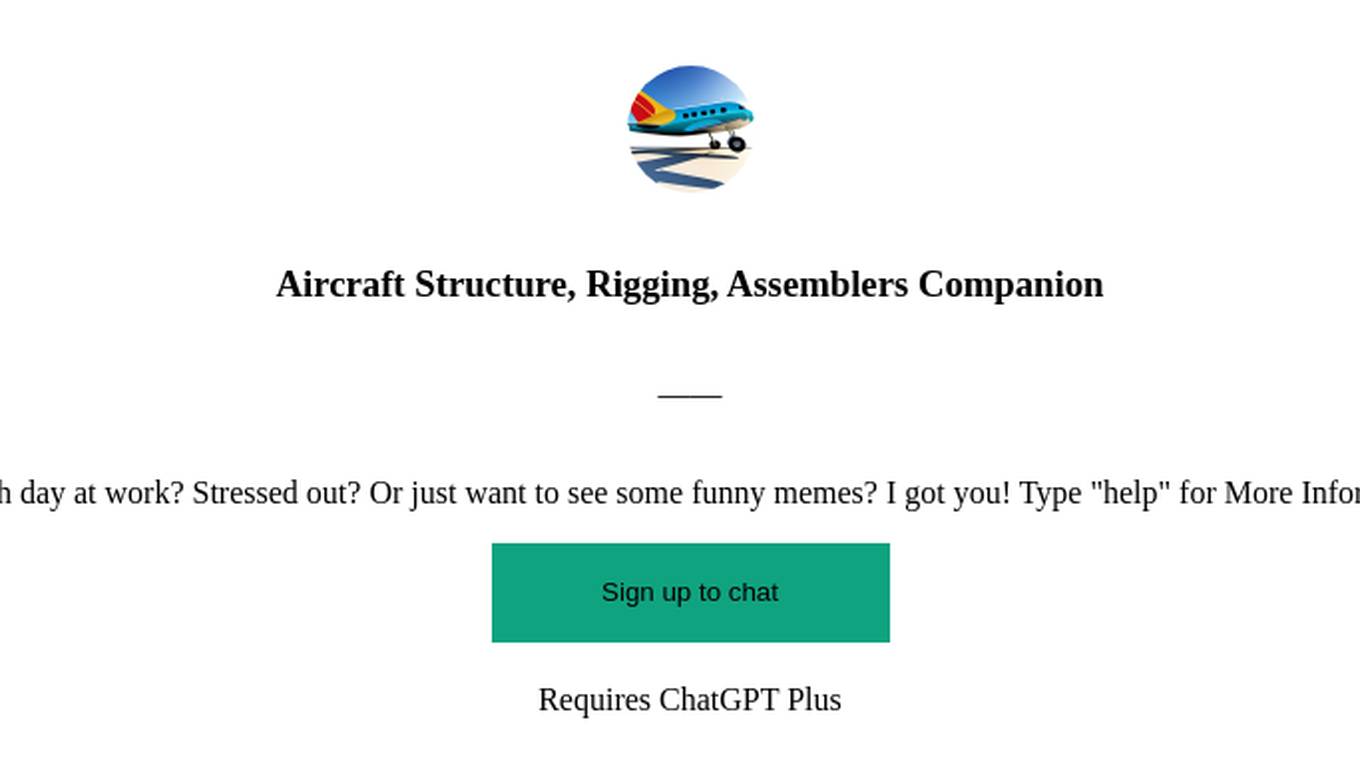
Aircraft Structure, Rigging, Assemblers Companion
Rough day at work? Stressed out? Or just want to see some funny memes? I got you! Type "help" for More Information
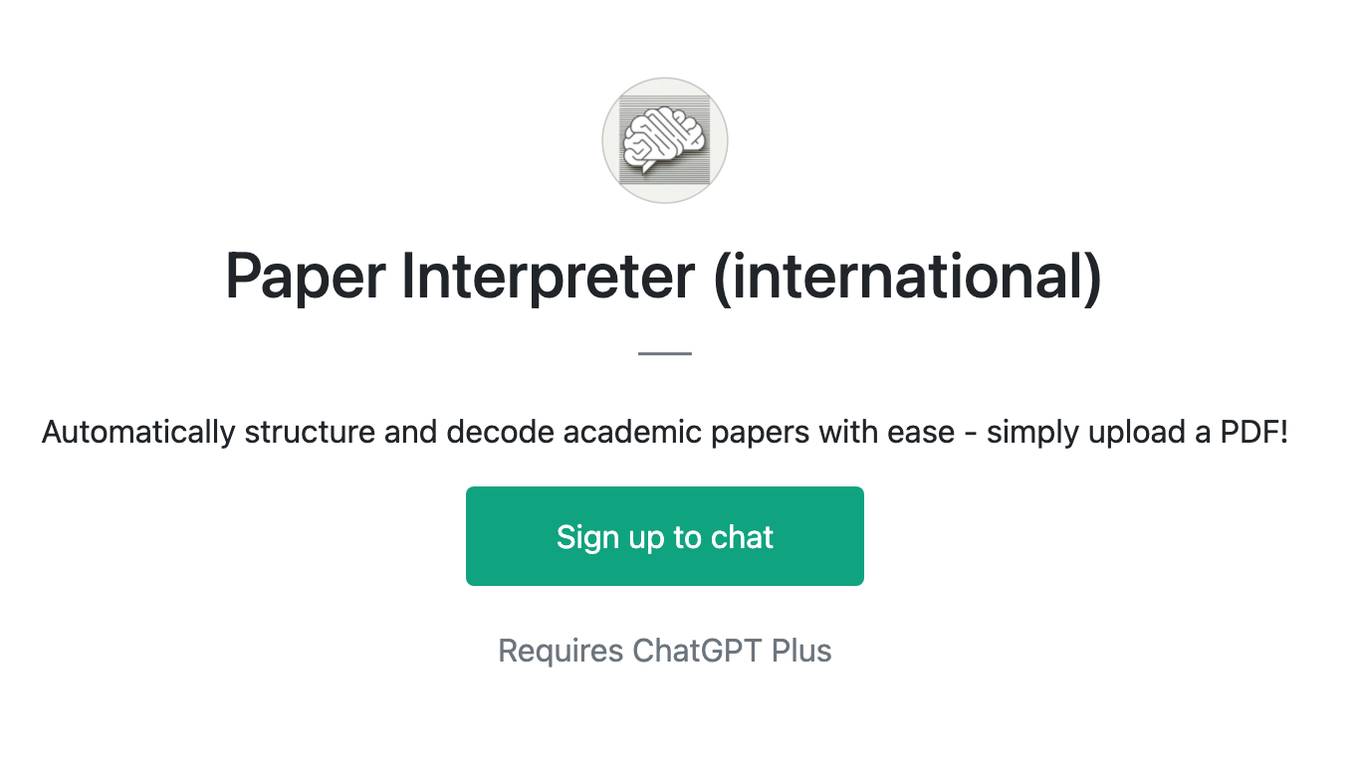
Paper Interpreter (international)
Automatically structure and decode academic papers with ease - simply upload a PDF!

